AGM 2020
pages 20–32
The Sixties Scoop page 18
Supporting Muslim students during Ramadan pages 8–9

March 2020

pages 20–32
The Sixties Scoop page 18
Supporting Muslim students during Ramadan pages 8–9

March 2020
What if you get sick? Volume 32, Number 4
6 Remembering our editor extraordinaire
7 Speaking truth to power
8 How teachers can support students during Ramadan
BCTF Internal Mediation Service
11 BC Teachers’ Institute on Parliamentary Democracy 12 How do I assess THAT?
14 Are you missing out on salary? 15 Day of Mourning BC Schools Project
16 My experience as a “dumb” student 18 Uncovering the Sixties Scoop 19 New teachers join in learning at BCTF conferences
Special resolutions
Candidate statements
3 President’s message
Message de la présidente
Book reviews 39 Classifieds
Articles reflect the views of the authors and do not necessarily express official policy of the BCTF. The BCTF does not endorse or promote any products or services advertised in the magazine. Advertisements reviewed and approved by the BCTF must reflect BCTF policy and be politically, environmentally, and professionally appropriate.





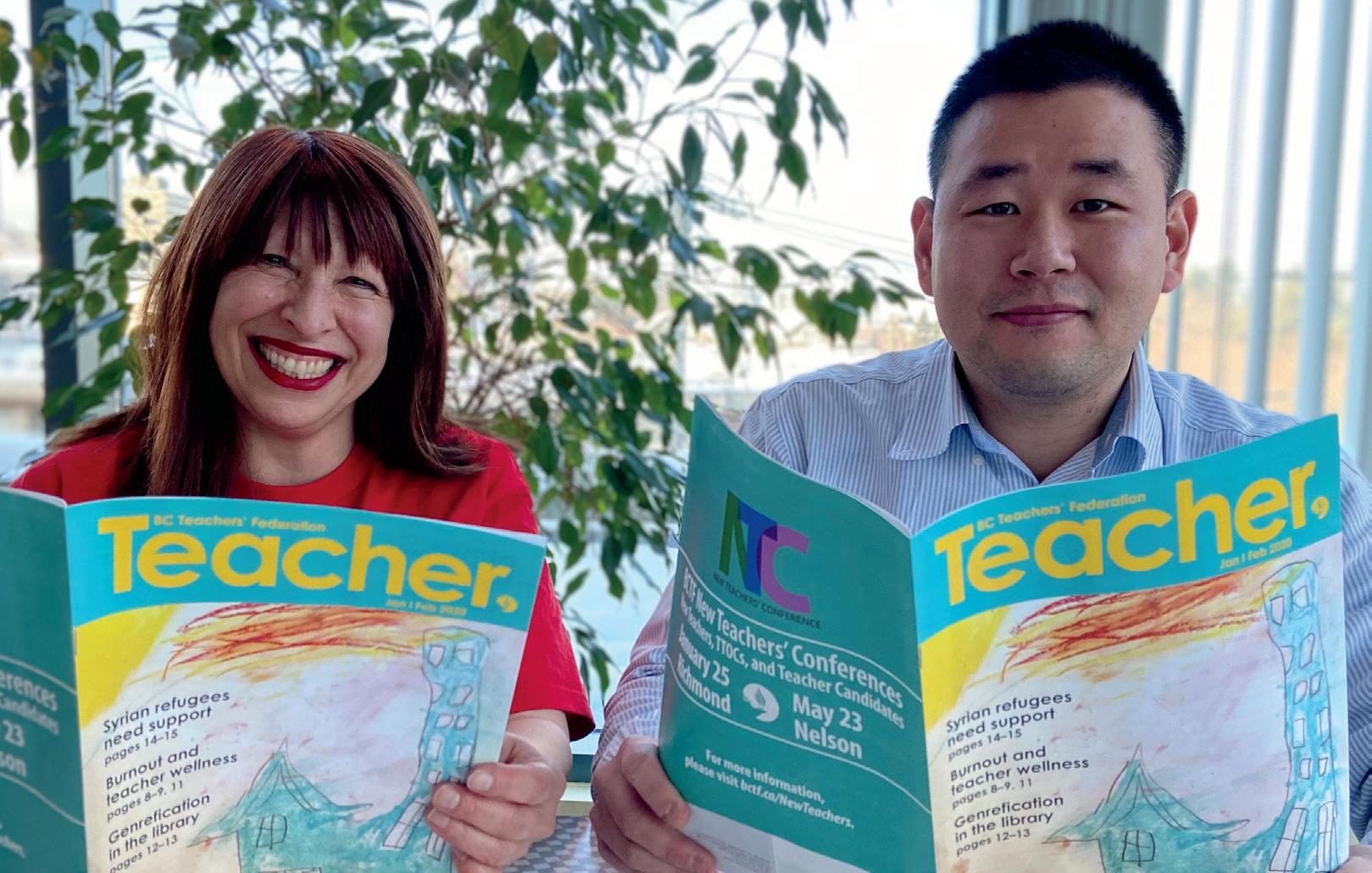
Karen Edwards, BCTF Executive Committee Member-at-Large and JW Cho, Richmond, reading the January/February issue of Teacher. Send pictures of you or your colleagues reading Teacher to teachermag@bctf.ca and you could be featured! Jennifer Kimbley photo.
Do you enjoy writing? Have a story to tell? Know of a project at your school or in your local you want to share with colleagues?
Then consider writing for Teacher, the flagship publication of the BCTF! Submission guidelines are available at bctf.ca/publications/TeacherNewsmag. aspx
We also welcome letters to the editor. Send your letter to teachermag@bctf.ca.
Teacher reserves the right to edit or condense any contribution considered for publication. We are unable to publish all submissions we receive.
May/June March 27, 2020
Contact us
BC Teachers’ Federation
Toll free 1-800-663-9163
Email teachermag@bctf.ca
Web bctf.ca/newsmag
Acting Editor Jennifer Kimbley jkimbley@bctf.ca
Assistant Editor/Design Sarah Young ISSN 0841-9574
BCTF Executive Committee
Violette Baillargeon Teri Mooring
Marjorie Dumont Jody Polukoshko
Karen Edwards Robin Tosczak
Rae Figursky
Carole Gordon
Susan Trabant
Katherine Trepanier
Glen Hansman Kip Wood
Clint Johnston
Teacher Magazine Advisory Board
Back L to R: Mahima Lamba, Jennifer Fox, Renée Willock. Front L to R: Shelley Balfour, Catherine Quanstrom
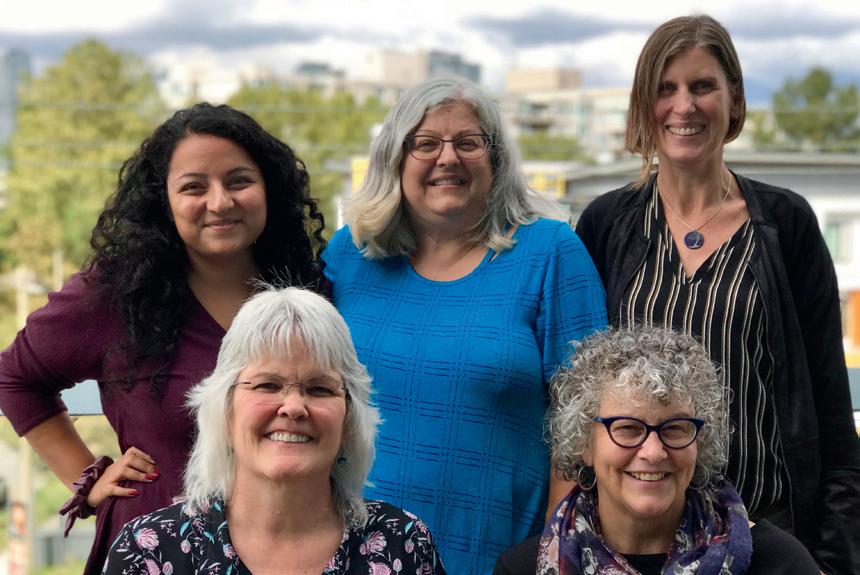
Our priority remains a deal in mediation, but we have a strong contingency plan
On February 2 the Representative Assembly (RA) endorsed a strong contingency plan, if needed, to help us achieve a good deal if mediation doesn’t get the job done.

Teri Mooring, BCTF President
I want to thank all members for the thoughtful conversations and feedback leading up to the RA. Discussions regarding potential job actions are not easy, and these decisions are never made lightly.
We remain 100% committed to mediation and there can be no job action while we remain in this process. But, we needed a plan in place to keep bargaining moving forward in case mediation comes to an end without a good deal.
I want to thank all members who have engaged in sending emails to MLAs, shared our petition, and participated in rallies and other actions. This effective advocacy is critical to keeping pressure on the employer.
For many months a significant barrier to progress has been the employer’s demands to strip the collective agreement language that was restored by the Supreme Court of Canada. Those concessions would eliminate class composition, reduce support from specialist teachers, and make classes larger. We need to continue to protect these important working and learning conditions and push to ensure locals without them gain some ground.
We also need a salary boost to bring us closer to our counterparts in other provinces. We are the second-lowestpaid teachers in the nation and are contending with a worsening teacher shortage. The shortage has a myriad of negative consequences for students, particularly the most vulnerable. We need a salary increase to encourage more teachers to come to BC.
Our unity and solidarity in the past enabled us to achieve the working conditions we have today, first at the bargaining table and then in the courts. If additional pressure is needed, we have a plan, subject to membership votes. We need to keep the pressure on government and trustees to get a good deal.
Our kids and their teachers are worth investing in!
Notre priorité
demeure l’obtention d’un accord en médiation, mais nous disposons d’un solide plan de contingence
Le 2 février, l’Assemblée des représentants (AR) a approuvé, en cas de besoin, un solide plan de contingence afin de nous aider à conclure un accord si toutefois la médiation ne nous permettait pas d’y arriver.
Je veux remercier tous les membres pour les sérieuses conversations et les commentaires qui ont mené à l’AR. Les discussions concernant les actions de travail potentielles ne sont pas des discussions faciles et ces décisions ne sont jamais prises à la légère.
Nous demeurons 100% impliqués dans la médiation et aucune action de travail ne sera entreprise tant que ce processus sera en cours. Cependant, nous avions besoin de mettre en place un plan afin de poursuivre la négociation, dans le cas où la médiation prendrait fin sans qu’une entente ne soit conclue.
Je veux remercier tous les membres qui se sont engagés à envoyer des courriels aux députés, à partager notre pétition et à participer aux manifestations et autres actions. Ce plaidoyer est critique afin de maintenir la pression sur l’employeur
Pendant plusieurs mois, un obstacle important au progrès fut les demandes de l’employeur de supprimer l’article de la convention collective qui avait été restauré par la Cour Suprême du Canada. Ces concessions élimineraient la composition des classes, réduiraient le soutien des enseignants spécialisés au élèves et élargiraient les classes. Nous devons continuer à protéger ces importantes conditions de travail et d’apprentissage, ainsi qu’à pousser pour s’assurer que les sections locales qui n’en bénéficient pas puissent gagner un peu de terrain.
Nous avons aussi besoin d’une augmentation de salaire pour nous rapprocher de nos homologues des autres provinces. Nous sommes les deuxièmes enseignants les moins bien payés du pays et nous sommes confrontés à une pénurie croissante d’enseignants. Cette pénurie a une multitude de conséquences négatives pour les élèves, particulièrement les plus vulnérables. Nous avons besoin d’une augmentation de salaire dans le but d’encourager plus d’enseignants à venir enseigner en C.-B.
Notre union et notre solidarité nous ont permis dans le passé d’obtenir les conditions de travail dont nous bénéficions aujourd’hui, premièrement à la table de négociation et ensuite dans les cours de justice. Si des pressions supplémentaires sont nécessaires, nous avons un plan, sujet au vote des membres. Nous devons maintenir la pression sur le gouvernement et les administrateurs pour parvenir à une entente.
Nos enfants et leurs enseignant(e)s en valent la peine!
Thank you for such a pertinent, valuable article on menopause. I am glad it was published in Teacher, and I hope every teacher reads it!
I have been retired since 2005, but I still have many memories of being menopausal while teaching.
When I was menopausal in the 1990s, I was the teacherlibrarian at Florence Nightingale Elementary School in Vancouver. The first thing I did on arrival at school was to open all the windows in the library. School started at 8:45 a.m. I had many hot flashes every day, and there was always one at 9:00 a.m. precisely. My face would turn red, my scalp would sweat profusely, and sweat would pour down my face and drip off my nose and chin. I always carried a cloth handkerchief to blot my skin. My students would ask me if I was sick. I never told them I was menopausal, but said I would be fine in a few minutes, and I always was. However, my colleagues knew about my condition. We also knew that there were several other women on our staff who had various symptoms, mine being the most obvious at school. We found out that we could not control the heat in our rooms in our old school built in 1912. Some of us had night sweats and came to school tired after sleepless nights. We had mood swings. We needed to sit down from time-to-time each day. And so on.
Refugee students need support I received the email below and wanted to share it with you as well. It’s little things such as the stories in the magazine that really connect us as educators and sometimes let us know that we are not alone.
Thank you so much for helping bring this to people’s attention.
Alyson Mosher, author of “Refugee students need support” in the Jan/ Feb 2020 issue of Teacher.
Hi Alyson!
I can’t describe the feeling when I picked up the magazine from my mailbox just minutes ago. On the cover is a statement that I’ve been bringing up to the English as an additional language (EAL) department, over and over again.

Above is a drawing of a burning Syrian school by one of Alyson’s students.

It’s good that there are resources available now that I did not have access to. I hope they are well advertised and widely used. Every local should put frequent notices in their newsletters to inform or remind members. We are all in this together!
Keep up the campaign to take the embarrassment and stigma out of being menopausal and to inform all members of the gravity of the situation for some members.
Sincerely,
Maureen L. MacDonald Retired teacher, VESTA Retired BCTF staff member
Read Debbie Moran’s article “Let’s start talking about menopause” in the Nov/Dec 2019 issue of Teacher.
I have a handful of refugee students. It’s not a lot, but I’ve been the EAL teacher here for almost 10 years, and I’ve worked with their families and seen how the stress is wearing them down. I’m seeing that my younger students (Grade 6) are illiterate in Arabic or their mother tongue because there was simply no education in the old country, in the refugee camps.
These kids and their families need so much more than I can give. More than I can even point them toward. I’m so glad that you wrote your article for Teacher. Please extend your reach and get this into the minds and hearts of the general public.
It’s such a relief to know that I’m not alone in wanting more support for these students, and maybe I can come up with some better ideas about what to do about it.
Laurelei Primeau, Home Ec., EAL, and Green Teachers contact Pitt River Middle School, Port Coquitlam
Hi Alyson,
Thanks so much for your email and for sharing the correspondence you received from Laurelei. I was so happy to hear of the impact of your article that I have shared your email with the communications department at the BCTF. It’s very nice to know that we are supporting members and helping them to make connections and improve their practice. Teaching can be a very lonely job, and it’s good to know that we’re not alone in our classroom or with the issues we face at our schools. Your article has done just that.
In solidarity, Jennifer Kimbley, Acting Editor, Teacher
I am a secondary trained music specialist (Bachelor of Music in Sec. Ed. and Bachelor of Secondary Ed from UBC). My goal was to teach middle or high school music but coming out of university over 25 years ago, it took three years as a TTOC to get a music teaching contract, but that was teaching elementary school general music. Despite having Orff and Kodaly courses under my belt, I most definitely felt like a fish out of water as many elementary schools do not have a selection of Orff and Kodaly resources and equipment. I stayed at that school for 10 years and built a successful program of general music before being seconded to a middle school position, where I am now.
Sadly, I’ve watched the decline in music programs in the elementary schools in my district over the last 25 years, and with classroom teachers having to teach all subjects, there are many students who don’t get exposed to quality music education until they reach middle school. This is unacceptable. I am now seeing a push for middle school teachers to also become generalists in the classroom in my district, and I fear that music specialists in the middle schools will soon be pushed out.
Research is clear on the brain and social benefits of a quality music education program, and this needs to be encouraged at all grades, not just secondary schools.
Michelle Stewart A.D. Rundle Middle School
Read Sonja Karlson’s “BC teachers need an elementary music cohort in universities” in the Jan/Feb 2020 issue of Teacher.
Thank you for your thoughtful response to Jim McMurty’s letter regarding the book White Fragility
I am a retired English teacher and teacher-librarian from Kitsilano Secondary, and just last month I read White Fragility. To say it had a huge impact on me would be an understatement.
If you are looking for people to be in your book club discussion of White Fragility, please consider including me.
Sincerely,
Gena Kolson
Hi Gena,
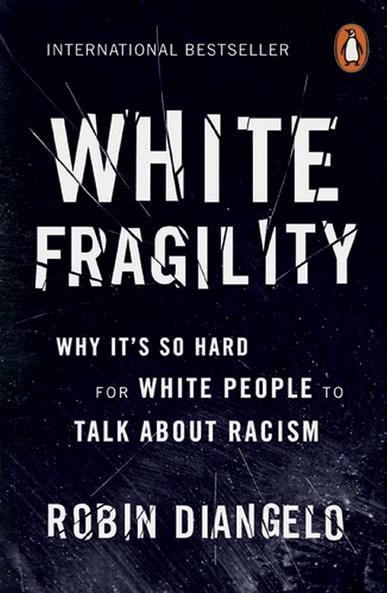
Thanks so much for your email! We are meeting at 12:30 p.m. on Tuesday, February 25. I would be very happy to have your voice join the discussion. I’ll be in touch.
In solidarity, Jennifer Kimbley, Acting Editor, Teacher

A small but mighty group of retired teachers from the Comox Valley met in front of our local MLA’s office to show support for our colleagues in the current bargaining process.
Many of us are not strangers to supporting public education through political action. Some of us were architects in creating the class-size/composition language that we are fiercely protecting.
We have lived through the dismantling of well-funded and staffed programs for students with special needs. We were promised integration, neighbourhood schools, and sitebased supports; however, the promised supports for kids in their neighbourhood schools were never delivered. What we got were district specialists assigned to numerous schools who could only act as consultants, with the real work of teaching left to the classroom teachers with limited support from educational assistants, many of whom do not have the training required to teach kids with special needs.
The only things left that we could rely on were contractual limits in class size and composition. And we know what is happening to that.
So, for those of us who are retired and for some of us who are still on the TTOC list, we support our colleagues who are doing the work every day. Please know that you are not alone in this. There are many of us who are behind you, beside you, and helping in any way we can to get the message out.
Yours in solidarity, Karen Langenmaier
Retired speech and language pathologist and active TTOC; Chair of the Defence for Public Education, Comox District Teachers’ Association; former local president, BCTF Executive Committee member, and BCTF staff member
By Nancy Knickerbocker BCTF staff
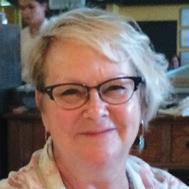
BCTF MEMBERS, activists, and staff are saddened by the recent death of Susan Croll—our kind colleague, dedicated union sister, and extraordinary editor of Teacher magazine.
Susan died on January 21, 2020, after a valiant three-year battle with cancer. She passed away peacefully at her home overlooking the Fraser River, in the arms of her lifelong partner, Jim Sinclair, with her son Lee at her side. She was 62 years old.
After Lee was born, Susan’s love for children blossomed. She went back to university and completed her studies, eventually earning two Masters’ degrees, and became a proud teacher and passionate activist.
She first served on the BCTF Status of Women committee and later was elected vice-president of the Maple Ridge Teachers’ Association, where she and local president George Serra led their members through the tumultuous early strike years. A skilled communicator and energetic campaigner, Susan brought her whole heart and soul to her activism.
In 2013 Susan was appointed editor of Teacher and she promptly set about transforming it from a dated tabloid newspaper format to the modern

Susan Croll, teacher, unionist, and editor of Teacher magazine. Karen Steel photo.
magazine we have today. Under her editorship, Teacher became a more timely and focused publication that never lost sight of the needs of teachers in their classrooms.
Susan and the writers she encouraged won many awards from the Canadian Association of Labour Media, a national organization of communicators from more than 300 unions. Susan herself won the much-coveted “Stroke of Genius” award for her webpage called “Teachers’ Voices on the Line,” which documented the many creative and colourful initiatives teachers created in pursuit of a fair deal in 2014. Members
wrote songs and poems, painted pictures and placards, danced and rapped, and Susan documented it all.
As a colleague, Susan was kind, inclusive, conscientious, and creative. Her political analysis was sharp, her feminist principles were firm, and her teacher’s heart was open and generous. We miss her smile, her humour, her sense of fun on the job.
Now it’s our job to continue publishing the very best editions of the magazine she curated so lovingly on behalf of the BCTF members she respected so much.
on February 7, 2020, just as this magazine was going to print. The BC government announced it will not introduce the prevalence model.
This is a significant win for BC teachers. Rather than funding the needs of individual children, the government was considering switching to a model based on population statistics. It would have had incredibly negative consequences for special education in BC.
The government also committed to work with the BCTF and others to get inclusive education funding right.
Stay tuned for more information on this breakthrough!

Melissa Davies @tigerseye87 Jan 30
@bctf I spoke with @jjhorgan in YXS yesterday. Opened with “I am Melissa Davies, a teacher in Burns Lake”. I noticed a change in body language, but I pursued. I mentioned that I was at the AGM and the RAs that Mr. Horgan spoke at. I mentioned that the messaging felt positive.
By Rich Overgaard, BCTF staff

IN PUBLIC RELATIONS and marketing, it’s called the “elevator pitch”—that brief and persuasive speech given to a captive audience in an unexpected location.
That’s what Melissa Davies from Burns Lake gave Premier John Horgan when she ran into him at the Prince George airport.
Read her own account of that encounter from the thread she posted on Twitter. What a great example of seizing the moment and speaking personal truth to power!
I often meet teachers in workshops about media training who tell me they don’t know where to start when speaking to elected officials or the media. I always reassure them that they already have the skillset. They stand up in front of tough audiences every single day with poise and confidence.
So be ready. What are three simple things you could say to try and persuade or inform an MLA or cabinet minister in an airport waiting area, or the grocery checkout line, or an elevator? They could be facts or your own personal perspectives.
Think about it and be ready to seize that moment when it happens!

He responded that he still feels positive toward public education and that’s the message he has been sharing. I disagree. He said that he is unable to do anything, it is up to “my leadership” to go to the table and bargain, not anything he can do. I disagree again.

When you stand at our AGM and RA, holding previous leadership accountable for the lack of bargaining and deals made (called Christy Clark out by name, as I recall) how is it that you do now not have a voice?

The next piece that I would like to call attention to is the mention of funding. Horgan said he would need to go back to 150,000 people in order to change funding available. Yes. That IS what we want you to do! He also said that we, the teachers, can have things beyond

The agreement [and] that we could work “creatively” to make changes. He also said that we have had positive interactions, like curriculum involvement and new schools. This feels the same to me. It’s on teachers to be “creative” without proper funding and support?

I would like to add that Horgan brought up a couple of times that he does NOT think this is the same. When I brought up BCPSEA, he got annoyed, said “let me finish” and said that this is brought up a lot. It’s not the same (it is) and that maybe he should have made changes when

He first came in 2 years ago, but he didn’t so we need to make a deal so that change can happen. Did you get that? We need to make “a deal” to get through this round to make a better deal later?

Last thing I want to say—having family members that are teachers does not prove loyalty or care for the profession. Listening to your rehearsed conversation (and it was clearly rehearsed) does not ease my mind. You told me I need to tell my leadership to go to the table.

Don’t worry. My leadership is at the table, continuing to bargain—but, we need more dates! We need something new! We need movement on government side too. Don’t just say it’s different, act on that!

I had to catch my flight, so this conversation ended. However, the major conversation continues. I support my colleagues. I support my leadership. I know that our messaging hasn’t changed: our teachers and students are worth investing in.

By Rusul Alrubail, Executive Director, Parkdale Centre for Innovation

RAMADAN IS A MONTH in the Islamic calendar when Muslims observe fasting from sunrise to sunset. And it can be a difficult month for many to get through, especially students who have to go through a normal school day without eating or drinking. This year, Ramadan will begin on Thursday, April 23. For schools, it’s important to provide an environment for students where they feel safe to practise their religion, but maybe more importantly, one that ensures their well-being during the school day.
Not everyone is expected to fast. Fasting is not obligatory for children, until they reach “of age.” There is scholarly debate on what that age might be, though most scholars do recommend that fasting start when one reaches adolescence, anywhere from 13 and up. There are some Muslims who start earlier or later. For example, I started when I was nine, but I did “half-days,” meaning I fasted from either morning until about lunchtime or from lunchtime until evenings.
Often Muslims are exempt from fasting if they’re ill, have certain medical conditions, or they’re travelling. Pregnant and breast-feeding moms are also exempt, as well as elderly folks. Fasting is not required during menstruation.
Ramadan is considered one of the holy months in the Islamic calendar. Kindness, forgiveness, and charity are recommended and often pursued as good practice in faith. It is also a time to be more compassionate and show empathy to those who are in need.
While fasting, Muslims abstain from eating, drinking, smoking, and sexual activities. Ramadan is a time for Muslims to make an extra effort to abstain from lying, gossiping, and other sinful acts. Many Muslims use Ramadan as a time to reset and start anew, creating new goals and improving old ones to improve oneself and rejuvenate the spirit and the soul.
Fasting often provides a spiritual perspective for Muslims that allows them to understand the suffering of those who are less fortunate. It also reminds us to not be wasteful of God’s blessings.
Rusul Alrubail is the Executive Director of the Parkdale Centre for Innovation in Toronto, Canada. She is also a writer, speaker, and social justice activist. This article was originally published on www.pbs.org. Reprinted with permission of the author.
How schools can be supportive
During this holy month, one of the hardest things that I often hear my Muslim students complain about is the lack of space and lack of understanding. Here are several ways to support your students during the month of Ramadan:
Understanding: One of the vital pillars in creating a safe environment for Muslim students in Ramadan is to educate oneself about the month. Many teachers and classmates do not understand why Muslims fast. It’s important to try to form your own understanding about the month and to not rely on Muslim students to educate the class.
Space: Lunchtime is probably one of the most difficult periods to endure while fasting. Many students will tell you that they don’t care if you eat in front of them, and chances are that might be true. However, hunger often worsens when you’re in a room full of people eating. It might help to have a comfortable space for Muslim students to go instead of the designated lunchroom during lunchtime. The room can have some iPads, books, magazines, and other things to keep students busy. Of course, it’s then up to the student whether they choose to go there or not, but having that as an option, even for students who are not fasting, is usually beneficial.
Physical education: I have heard that some teachers are not very tolerant of Muslim students practising Ramadan, and therefore are not very understanding when students cannot participate in physical education classes. Some students have grades deducted because of their lack of participation during Ramadan. This is not okay. It is within students’ rights to practise their religion, while having the necessary conditions for them to succeed and achieve their best potential. Teachers can make accommodations for practising students, such as assigning a different task/project for students to complete that does not require any strenuous work while they’re fasting.
Empathy: This sounds a bit easy, but having empathy requires one to truly understand the other person’s situation and feelings. When planning school activities and events, think about how it will affect practising Muslim students. Will they feel left out? Will they need to break their fast during that time if it’s during Iftar (i.e., sunset)?
If students have the right accommodations and support from teachers and their peers, it can turn a challenging month into the most rewarding. If you’re still unsure about how to help practising Muslim students in your school, don’t hesitate to ask them privately what they need and how you can support them.
Are you experiencing conflict with a colleague(s)? Is a work-related dispute getting worse?

By Sherry Payne, BCTF staff

DISAGREEMENTS and conflicts are inevitable. When managed, awareness of issues and opposing viewpoints are increased, which can foster a culture of collaboration and positive change. However, unresolved conflict can fester. When conflict is left unchecked, your workplace climate can be negatively affected.
The BCTF Internal Mediation Service (IMS) can help if you have a workrelated issue that is:
• damaging a professional relationship
• affecting your work
• affecting your health and wellbeing.
The IMS team consists of membervolunteers who have completed rigorous training in conflict resolution and mediation skills. Their training incorporates anti-oppression, antiracism, equity and inclusion, intersectionality, addressing power imbalances, as well as mental health and wellness. They have
extensive and varied backgrounds in the teaching profession, and diversity is reflected in the IMS team. You can ask to work with a mediator who has a similar background and life experience to yours, and mediations can be conducted in French, upon request.
Participation in mediation is voluntary, non-disciplinary, private, and confidential. Records are not kept, and the outcomes of mediation are not reported to union officers or your school district. The process is respectful and kind, as mediators create a safe space to facilitate conversations that help resolve issues.
IMS will mediate conflicts between BCTF members, support staff, and administrators. We work with small groups within schools, local executives, and with BCTF committees, as appropriate.
If you’re in a difficult situation at work, please call us. Members report a remarkably high rate of resolution and renewed professional relationships. We would be happy to work with you.
iStock.com/KatarzynaBlalaslewicz
Mediation can bring resolution to disputes, conflicts, and work situations that have worsened because of a breakdown in communication. Resolved conflict can lead to a sense of relief, trust, and collegial collaboration, making room for the joy and passion we feel for our work.
For further information on the Internal Mediation Service process, please see the BCTF Members’ Guide, talk to your local president, or contact Sherry Payne, BCTF Ethics Administrator, at 604-871-1803, toll free 1-800-663- 9163, local 1803, or email spayne@bctf.ca.
By Steve Brügger, teacher, Surrey

I HAD THE GOOD FORTUNE to attend this four day professional development event with teachers from around the province. This institute was meticulously organized by Karen Aitken, Director of the Parliamentary Education Office (PEO), Jennifer Ives-Fournet, PEO Officer, and their assistants.
Our “legislative session” started on a Wednesday morning with a welcome speech from Speaker of the Legislative Assembly, Darryl Plecas. He is a passionate speaker and he told us about the importance of integrity and how people could use more of it, as well as the traits of effective leadership. Plecas embodied a theme that would emerge for me during my time in Victoria: at the end of the day, behind all the titles, roles, committees, and so on, are human beings, people not so different from you and me. Hence the importance of integrity and responsible leadership.
Our learning sessions included the Hansard record, the role of the Lieutenant Governor, watching Question Period, the role of the clerk, and history around the evolution of parliament. The day was capped off by a delicious supper hosted by the Speaker and the clerks at the Union Club.
Thursday saw another early start and the Legislative Council, Sherie Verhulst, entertained us with “Drafting Legislation and Orders in Council.” She was very engaging and presented the processes in a simple and straightforward way. We were lucky enough to watch the ceremonies and speeches around the adoption of the United Nations Declaration on the Rights of Indigenous Peoples. That was a special moment and I felt honoured to have been there when history was made. It was a perfect tie-in to the importance of people.
We refocused over lunch with multiple MLAs, including the Minister of Education Rob Fleming. Many of us got to meet the MLA from our school or home ridings.

The afternoon continued with sessions that included the Treasury Board, a three-member MLA panel, the Minister of Education, Elections BC, and the role of parliamentary committees. Dinner at the legislature had entertainment by the Parliamentary Players and we “met” BC’s first female MLA, Mary Ellen Smith, and the infamous architect of the Legislature, Francis Mawson Rattenbury.
Friday began at the Provincial Court with Madam Justice Jennifer A. Power to explain the role of the judicial branch of the government. Next came the media panel attended by Keith Baldrey, Vaughn Palmer, and Andrew MacLeod. They were entertaining and filled in another valuable piece of the government pie. A presentation from CIVIX continued this theme on the role of the public in government, followed by a personalized tour with Leslie McGarry (a fountain of knowledge and wisdom), of the Pathways to Appreciation in the First Peoples Gallery at the BC Museum. There was a guided tour of the Parliament Buildings before an informal networking event at the hotel.
Saturday saw us focusing on developing new or refining existing lesson plans
and ideas for the classroom. There was a session from Elections Canada and the PEO resources as well before we presented our ideas to each other, said our goodbyes, and left to return to our regular lives.
One of my biggest takeaways was having the titles, roles, functions, and responsibilities of the provincial government humanized by passionate and caring people. They all seemed genuinely interested in serving the province, and, perhaps more importantly, they all care about moving our democracy forward together.
I would like to encourage teachers to consider applying to this program. You will be well fed, you will learn a lot about our legislature, and if you take the ferry there and back like I did, you will be reminded of just how beautiful our province is.
Applications for the next BC Teachers’ Institute on Parliamentary Democracy will be taken on April 1, 2020. Visit www.leg.bc.ca/learn-about-us/ educational-programs-workshops/ bcti for more information.

By Sheryl MacMath Associate Professor, Teacher Education University
MANY TEACHERS would agree that the curricular competencies are critical in today’s society. But, after so many years of focusing on content, it can be challenging to rethink how to gather evidence and assess those competencies. The Ministry of Education is encouraging strategies like project-based learning, where students build something to solve a problem that exists beyond the classroom, but what gets assessed? Is it the final product that shows what students learned, or is it the process they go through? If it’s the process, how do we assess that? Another problem: real projects are messy. What if students don’t succeed in their final project? Does that mean they have failed?
These were the dilemmas encounttered when looking at assessing Janelle’s secondary science unit on aquaponics. The vision was clear: let’s have students learn about the connection between the global energy and food crises and look at aquaponics as a possible solution. Aquaponics is a system of locally growing vegetables without soil or fertilizer. Students learn about the physics of the system and the chemistry of managing a living system. Students used recycled materials to build their systems, which added many challenges. So often when you do “problems” inside the classroom everything works perfectly, like the math problems that never use “difficult” numbers. But life outside the classroom is messy and difficult—that’s reality.
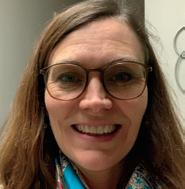
By Janelle Dick teacher, Abbotsford
Students were engaged, actively seeking different solutions to problems, persevered through repeated setbacks, learned to connect theory to practice, and worked collaboratively (when things get messy, it’s easier for a group to solve it). Fantastic learning! But how does it get assessed?
Adjusting the design of their bell siphon.
To honour the learning, and the Ministry’s focus on curricular competencies, the final product was not assessed. The curriculum being assessed was not about whether students could build a working system; it was about the content they applied and how they worked the problem.


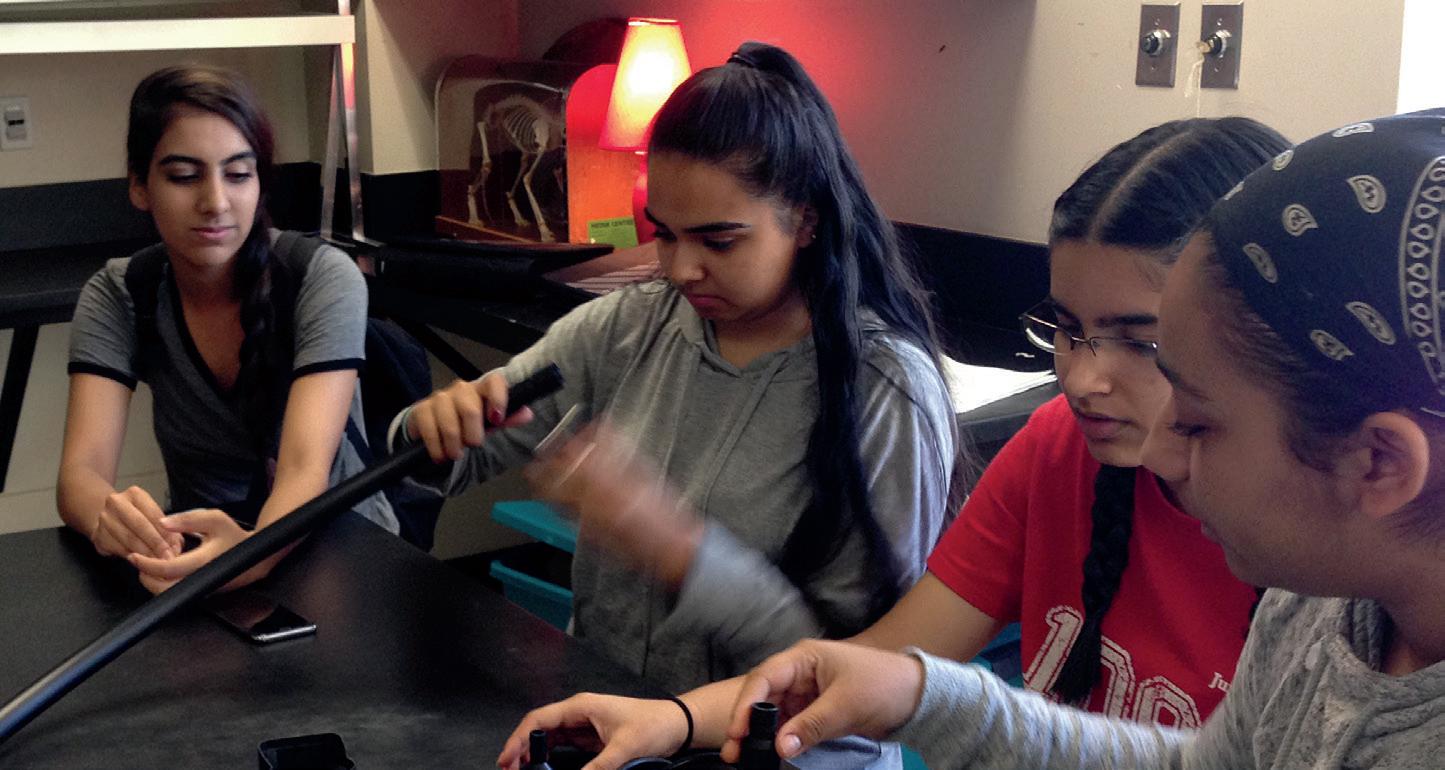
If it worked, that was exciting, but if it didn’t, that was all right. This freed up the students to focus on the task at hand, rather than trying to get a certain grade or make their teachers happy. Instead, the following was assessed:
Keep track of your observations. Observational records were kept as students moved through their work. Were they collaborating respectively? Were they trying a variety of solutions? Were they researching different ideas? Were they discussing why something would or would not work? Were they evaluating different solutions before trying them? Students knew these observations were a part of their final mark. They learned halfway through how they were doing (assessment for learning) so that they could make adjustments over the second half of the project (assessment of learning).
Have students create a log of learning and activity. During the project, students kept a record of what they were doing, who was involved, and what strategies they used. Just as with the observations, feedback was given halfway through. How were they doing? What could they do to improve?
Never underestimate the power of an interview. The unit finished with a final interview. Students were given three possible questions they could be asked: they would be asked one, but they did not know which one. They were given three classes to prepare for the interview. They could bring in notes; they could use their actual aquaponics system. This is where their ability to apply the content standards were focused on. They had to discuss the management of pH, the physics of the bell siphon, why aquaponics would or would not be a good idea for the Fraser Valley, etc.
What did we learn? In the overall unit, there were additional assessments. They created a website and wrote a letter on aquaponics to someone in the community. There were no tests, even though this was a Grade 10 class. Upon reflection, there were a lot of terms that were used in the unit; a quiz to test terms would have been a good idea (recognizing that they could retake it if they wanted to show their knowledge had improved).
In the end, assessing a project-based unit and curricular competencies were no more time-intensive than a traditional unit. It just required thinking a little differently about what was being assessed. How can evidence be gathered while students work? What did students learn from the unit rather than just what students can produce at the end of it?
To be honest, the hardest thing about it was not the teaching or the assessing, it was changing our mindsets as teachers about what was possible.
“Usually in other classes we just do paperwork on stuff, but in this class we actually made an aquaponics system.” – Grade 10 student
“I feel like this is a good way of learning because we get to experience what we are learning about.” – Grade 10 student
“As an environmentally conscious science teacher, I felt compelled to have students explore a real global issue in a scaled down, connected classroom experience. I wanted them to extend their thinking from the local to the global…so the curricular competencies really fit my vision. Students knew and bought into the ‘why’ behind the project before making any design plans. Then they set to work as scientists researching ways to make their design a possibility. This is what I wanted my assessments to focus on.”
– Janelle Dick, science teacher
1. If you are in category five plus (5+) and hold a master’s or doctorate degree that meets the requirements, apply for an upgrade.
2. If you hold an acceptable master’s or doctorate degree with less than 30 semester credits and have not yet topped up that degree and received an upgrade, apply for an upgrade.
3. If you are in category five (5) and hold a graduate degree that contains a teacher education program, you will need to complete an integrated program to qualify for category six (6).
1. If you are in category five (5) or lower and have completed course work that meets the new requirements of an integrated program but have not yet used that course work for your current category placement, please apply for an upgrade.
1. If you are in category five (5) or lower and have completed a second teacher education program for which you have not been granted Teacher Qualification Service (TQS) category credit, please apply for an upgrade.
2. If you are in category five (5) or lower and have completed a familiarization program for which you have not been granted TQS category credit, please apply for an upgrade.

If you require clarification as to how these changes might affect your upgrading requirements or current category placement, please request a director’s review of your file. Submit your request through the “Contact Us” page at www.tqs.bc.ca. You must provide verification of current employment in the BC public school system (most applicants photocopy a pay stub) in order to receive a director’s review.
To apply for an upgrade complete the Category Upgrade Application Form on the TQS website. Indicate that you are applying for an upgrade based on the policy and regulation changes.
No reviews or upgrades will be processed automatically. You must apply to the TQS in order to receive a review or upgrade.
For full information on these policy changes, please visit TQS at www.tqs.bc.ca.



By Toni Grewal, BCTF staff

THINK BACK to your first job. Maybe you were a high school student? Did someone tell you about your basic rights as a worker? Did you receive safety training before you started your job?
Many secondary students are already working or will be joining the work force soon. These new and young workers are extremely vulnerable because they may not receive adequate health and safety training.

They may feel obliged to work excessive hours during busy holiday and peak periods. They may be incorrectly lifting or carrying objects/ equipment or not have personal protective equipment.
Lack of safety knowledge, training, and equipment can expose young workers to risks and hazards that could have detrimental short- and long-term effects on their physical and mental health. Students, whether they work part-time or full-time, need to know
their four basic health and safety rights as workers, as determined by the BC Federation of Labour:
1. The right to know about hazards in the workplace.
2. The right to participate in health and safety activities in the workplace.
3. The right to refuse unsafe work without getting punished or fired.
4. The right to no discrimination for participating in health and safety activities.
Tuesday, April 28, 2020, is the
The Day of Mourning to acknowledge workers killed and injured on the job began in Canada and is now observed around the world. The BCTF has partnered with the BC Labour Heritage Centre to support the Day of Mourning BC Schools Project as a way to teach our students about their health and safety rights at work.
Secondary schools can register at the website below, and teachers will be provided with resources on health and safety awareness. The package is userfriendly, with scripts, posters, and a list of suggested activities.
To register and to download Day of Mourning teaching materials go to www.domschools.ca
By Veselin Jungic, Department of Mathematics, Simon Fraser University

RECENTLY I WAS INVITED to give a keynote presentation to the participants at an international workshop on the topic of mathematical thinking. I accepted the invitation with a fair deal of excitement: I was looking forward to spending a week with a group of distinguished and emerging scholars and having intelligent conversations about a topic that has been very close to my heart for a long time.
The group of workshop participants was very diverse. There were quite a few graduate students and postdoctoral fellows, a strong group of mathematicians, a significant number of researchers involved in mathematical education, as well as teaching practitioners, administrators, and academics from other fields, including cognitive science and computing science.
Among the keynote speakers were a couple of academics from the United States whose contribution to the workshop was a presentation connecting mathematics to dance. One was a dancer and choreographer who pioneered the teaching and promoting of mathematics through dance, and one was a mathematician who implemented dance in the teaching of some undergraduate math courses and researched the outcomes.
Their session was scheduled in two parts. The first part was a demonstration of one of the activities that they perform with students in the class or with general audiences interested in learning more about their work. The second part was a presentation about their research on how the use of dance as a way of communicating mathematical
concepts helps students better understand a particular topic and in general improves their attitude toward mathematics.
For the first part, all workshop participants were invited to the local concert hall. We had for ourselves the whole floor of a beautiful 80-yearold theatre designed in the Spanish Baroque style.
After assuring us that no previous dance experience was required, the workshop moderators invited everyone to stretch and perform a series of simple movements. It was obvious that they were both very good at managing this kind of audience. They were patient and encouraging, would repeat their instructions, and invite questions to clarify possible misunderstandings.
Still, since this was my first time in a situation like this and even though I was determined to do my best, almost immediately I felt uncomfortable with what I was doing. I was not sure if I could hear the complete instructions and if I understood and followed them fully. Since I didn’t want to stick out as ignorant, asking for clarification in front of everyone seemed out of the question. Looking around gave me an impression that everyone else was enjoying themselves. To me it seemed obvious: I was the only one who didn’t understand what our instructors said. The only comfort was that I had smartly positioned myself at the edge of the room, so nobody could really see what I was doing or not doing.
Well, this relative comfort didn’t last long. The next instruction was that we find a partner and continue working in pairs. But I was lucky! Right beside me was a colleague that I had met at a conference a few years back and who I knew as a very thoughtful and caring person. And indeed, during this segment of the workshop, she tried hard to help me to do exactly what we were asked to. For example, one of the exercises was that one person would take a certain body position and the other person was supposed to mirror it. When my colleague realized
that I was too slow in connecting what I was told to do and what I was actually doing with my arms and legs, she simplified the whole sequence of exercises by giving me even more precise instructions and making the body movements more elementary. “Thank you,” I thought.
Then came the instructions that we make groups of three or four! My partner and I were joined by a distinguished scholar whose books and work have shaped both her particular field of research and her national government’s policies in math education. It turned out that she was also an experienced dancer.
During the first group exercise, the smile disappeared from her face. She was, I felt, really disappointed with my lack of body co-ordination. I was quite sure that I could see in her eyes that the verdict was, “You are dumb!” Oh, how I wished to be somewhere else at that moment. My other colleague sensed the awkwardness of the situation and suggested that, for our task, our “dance” was supposed to mimic the geometrical notion of translation, that I be in the middle and that she would be in the back to cover my “mistakes.” The slight head nod by our partner convinced me that she too wanted to be somewhere else.
When the workshop moderators brought us all back together it became clear that each group had actually performed at least one of the four basic types of symmetry for planar patterns: translation, rotation, reflection, and glide reflection. Very neat!
The following Monday morning I was back in front of my calculus class. Still jet lagged, I was looking at my students and thinking, “What else do I need to do to reach out to those of you who need more of my time, attention, and support to fully grasp what we are talking about and to develop your skills and talents to the best of your abilities?” The feeling of being treated as a “dumb” student for a moment will, I hope, make me a better teacher from now on.
Veselin Jungic is a 3M National Teaching Fellow and a professor in the Department of Mathematics at Simon Fraser University. This article was originally published in University Affairs magazine: www.universityaffairs.ca Reprinted with permission of the author.

By June James, BCTF staff

THE BCTF IS HONOURED and proud to display the Legacy of Hope Foundation’s exhibition Bi-Giwen: Coming Home—Truth Telling from the Sixties Scoop. It was displayed at the New Teachers’ Conference in Richmond and will be featured again at our Annual General Meeting in March.
The Legacy of Hope Foundation is an Indigenous-led national, charitable organization. It was formed in 2000 to educate and raise awareness about the history and ongoing impacts of the residential school system on First Nation, Métis, and Inuit survivors, their communities, and their descendants.
The Sixties Scoop, a term coined by Patrick Johnston, author of the 1983 report Native Children and the Child Welfare System, contributed to the legacy of cultural genocide that began with the residential school system. The term refers to a period in history, roughly between 1961 and the late 1980s, when large numbers of Indigenous children were removed from their families and placed into the child welfare system, in most cases without the permission of their families or communities.
The 1960s saw a drastic acceleration in the number of these children taken from their homes and placed, most of the time, into middle class, Euro-Canadian families. In 1951, for example, 29 Indigenous children were in care in the BC child welfare system, and by 1964 that number had jumped to 1,466. The number of Indigenous children placed in care continued to climb, and by the 1970s approximately one-third of all children in care were Indigenous. About 70% of those apprehended children were placed
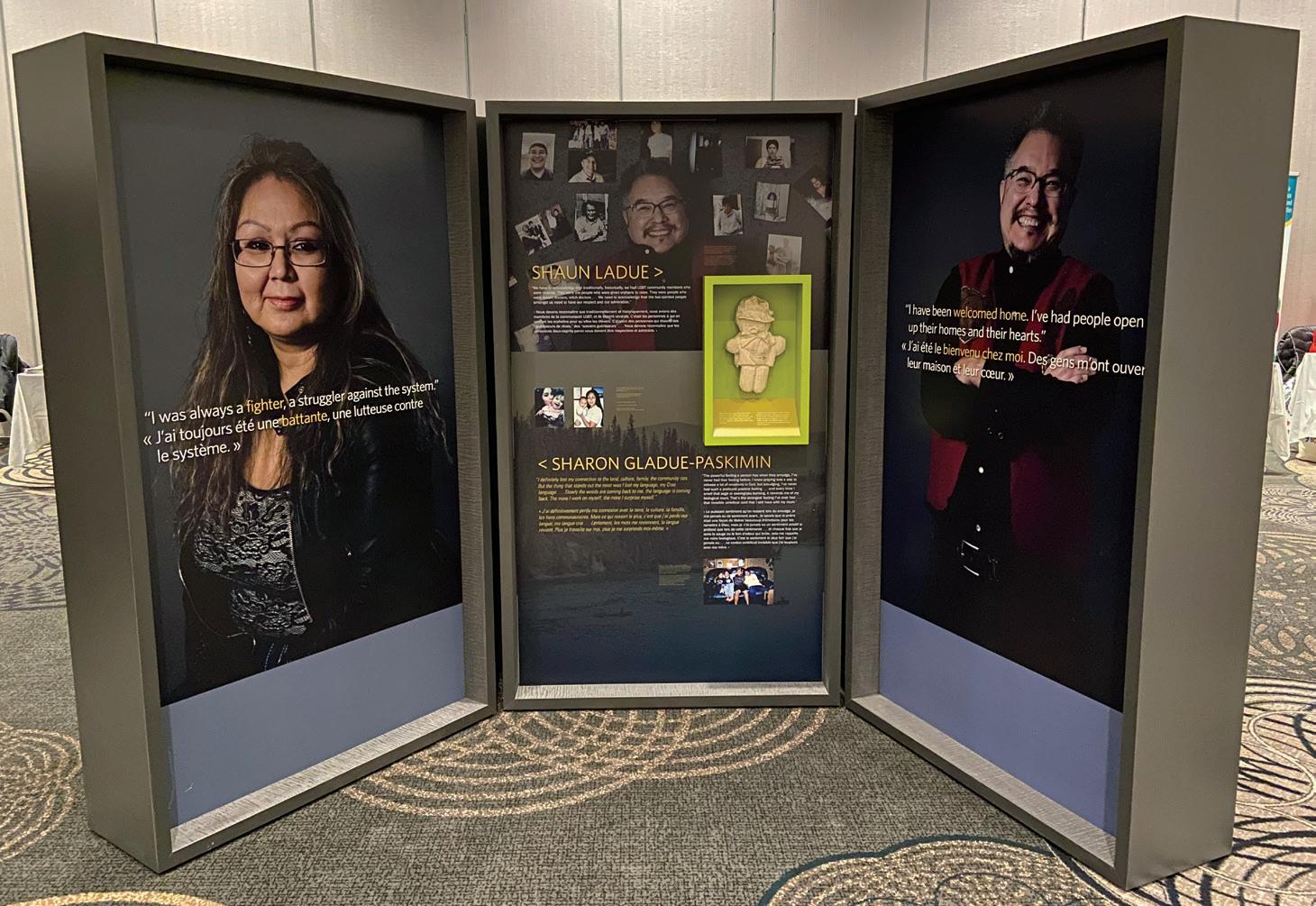
“The Sixties Scoop contributed to the legacy of cultural genocide that began with the residential school system.”
A portion of the exhibition at the
also exhibit at this year’s BCTF
in non-Indigenous homes, many of which denied the heritage and culture of these children.
The social workers who placed these children had no understanding of Indigenous cultural patterns and apprehended children based on their understanding of Euro-Canadian cultural standards. Some of the homes in which Indigenous children were placed gave them caring, wellintentioned foster or adoptive parents, while other homes were ones in which slave labour and physical, sexual, and emotional abuse took place. Even in the best homes, the non-Indigenous foster parents were not appropriately culturally equipped to help these children develop a positive Indigenous self-image.
The lasting psychological and emotional effects of suppressed selfidentity and abuse on the survivors of the Sixties Scoop mirror those of the experiences of residential school survivors, and in the spirit of
reconciliation, healing, and moving forward are acknowledged as such.
This acknowledgment is front and centre in The Legacy of Hope Foundation’s exhibition Bi-Giwen: Coming Home—Truth Telling from the Sixties Scoop, which was developed in partnership with the National Indigenous Survivors of Child Welfare Network. It is an innovative, challenging, and interactive exhibition that features the firstperson testimonies of 12 Indigenous survivors of the Sixties Scoop. These testimonies reflect the enduring strength and resilience of the survivors, and we invite BCTF members to visit the exhibition on display during the AGM from March 14 to 17 at the Hyatt Regency Hotel, 655 Burrard Street.
BCTF members do not have to be delegates to attend the AGM, so before or after visiting the exhibit, come and listen to the meeting!
Developing our teaching practices, improving our connections with our students, and creating inclusive classrooms.
By Jennifer Kimbley, Acting Editor, Teacher
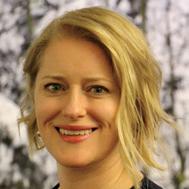
TEACHERS IN THEIR FIRST five years of teaching joined the BCTF New Teachers’ Conference in Richmond. The conference gave early career teachers an opportunity to develop a personal connection with the BCTF, provincial specialist associations, and colleagues from across the province.
Chilliwack teacher Saylesh Wesley inspired the audience with her keynote address. “It was a wonderful and important opportunity to speak to the next generation of teachers— particularly in a critical time when our profession needs to really buckle down and dig even deeper into their compassion,” she says. “I hope the intent of my message serves to foster safer learning and working environments for all students, staff, and families alike.”
“The care and consideration the BCTF has given to create this experience for new teachers is greatly appreciated and hugely encouraging at this stage of my career. I’m from Vancouver Island and I have a young family, so I wasn’t going to come at first, but I’m so glad I did. I attended the Aboriginal lens workshop and it was fabulous! As an Indigenous teacher it’s encouraging to know that Aboriginal content is being included and it’s part of the norm.”
–Kathryn Lacerte, TTOC in Saanich
A panel of five LGBTQ2S+ teachers spoke to delegates about their experiences as out teachers and suggested strategies and resources for new teachers to make their classrooms inclusive of all students.
Workshops covered numerous topics— teaching sexual health, working with refugee students, and more. “The workshops were informative and had many important topics for new teachers and TTOCs to keep in mind,” says Mohamed Assad (pictured right), a new teacher in Surrey. “They covered everything from knowing our rights to trying to better understand the dynamics of our students.”
The next New Teachers’ Conference will be held in Nelson on Saturday, May 23, 2020. Registration opens March 4 at bctf.ca/NewTeachers

“I got some really supportive advice from the Early Career Teachers’ Association—I’m glad I was able to talk to them and sign up for their newsletter. The conference has a very supportive feeling and everyone is very friendly. The LGBTQ panel was interesting, and it was very moving to hear about their experiences. I took the risky play workshop and it was fantastic!”
–A rielle Mckeown (pictured above), recent graduate from UBC’s Okanagan School of Education in Kelowna

“I feel like I’m on cloud nine with all the resources and the support the BCTF has been giving us. I just came out of the BC agricultural workshop that incorporated the Aboriginal medicine wheel into gardening, which is super cool! I’m planning on doing a unit in my long practicum on gardening as my school has a community garden— so that was a really helpful resource to have.”
–Cristina Tejero, UBC teacher education student with an upcoming practicum in Richmond
BC Teachers’ Federation
Annual General Meeting
Hyatt Regency Hotel
655 Burrard Street, Vancouver March 14–17, 2020

BCTF members are welcome to visit the AGM during any of the sessions.
FIRST SESSION, Saturday evening March 14, 7:00 p.m.–9:30 p.m.
Call to order
Traditional welcome Preliminaries
Report of the President Leadership Report
Post-Secondary Education
Public Affairs
8:30 p.m. Report of the Nominating Chairperson
Election statements from candidates for Full-Time Table Officer positions
Questions and answers session for candidates for Full-Time Table Officer positions
Call for Nominations
9:25 p.m. Announcements
9:30 p.m. Adjournment
SECOND SESSION, Sunday morning March 15, 9:00 a.m.–12:30 p.m.
Guest Speaker—Andrea Sinclair, BC Confederation of Parent Advisory Councils
Finance
a. Report of the Treasurer
b. Recommendations
c. Resolutions
11:00 a.m. Keynote Speaker— Dr. Shauneen Pete
Aboriginal Education
Unfinished business
12:00 p.m. Health and Safety Award
Unfinished business
12:25 p.m. Announcements
12:30 p.m. Adjournment
THIRD SESSION, Sunday afternoon March 15, 2:00 p.m.–6:30 p.m.
Guest Speaker—Jenny Regal, Vice-President, Canadian Teachers’ Federation Canadian Teachers’ Federation
Social Justice
Unfinished business
4:15 p.m. Awards— Bob Rosen Social Justice, International Solidarity
Unfinished business
4:45 p.m. Report of the Nominating Chairperson
Election statements from candidates for Member-at-Large positions
Questions and answers session for candidates for Member-at-Large positions
Call for nominations
6:25 p.m. Announcements
6:30 p.m. Adjournment
FOURTH SESSION, Monday morning March 16, 9:00 a.m.–12:30 p.m.
Guest Speaker—Paul Faoro, President, CUPE BC
Constitution and By-laws
AGM Standing Rules of Order
Organization of the BCTF
Unfinished business
11:45 a.m. Awards— Honorary Membership, Honorary Life Membership
12:25 p.m. Announcements
12:30 p.m. Adjournment
FIFTH SESSION, Monday afternoon March 16, 2:00 p.m.–5:30 p.m.
Health, Welfare, and Safety of Teachers
SIP Fee
a. Report
b. Recommendation
Regulation Review
a. Report
b. Recommendations
c. Resolutions
SIP Governance report
Education Finance
Unfinished business
5:25 p.m. Announcements
5:30 p.m. Adjournment
SIXTH SESSION, Monday evening March 16, 7:30 p.m.–9:30 p.m.
In Memoriam
Bargaining
Public Relations
Teacher Exchange
Certification and Teachers’ Council
Questions of advisory committee reports and Executive Director’s report
Unfinished business
9:10 p.m. Report of the Nominating Chairperson
Final call for nominations
9:25 p.m. Announcements
9:30 p.m. Adjournment
SEVENTH SESSION, Tuesday morning March 17, 9:00 a.m.–12:30 p.m.
Elections
Induction Ceremonies and Awards
Teachers Teaching on Call
Simplified Rules of Order
Annual General Meeting
Unfinished business
11:30 a.m. Presentation: BCTF 2050 Project
Unfinished business
12:00 p.m. G.A. Fergusson Award
12:25 p.m. Announcements
12:30 p.m. Adjournment
EIGHTH SESSION, Tuesday afternoon March 17, 2:00 p.m.–5:30 p.m.
Guest Speaker—Laird Cronk, President, BC Federation of Labour
BCFED/CLC
Education Policy
Unfinished business
3:00 p.m. Guest Speaker— Gerry Teide, President, Retired Teachers’ Association
Pensions
Boards of School Trustees, School Districts, and BC School Trustees’ Association
Unfinished business
5:25 p.m. Announcements
5:30 p.m. Adjournment
NINTH SESSION, Tuesday evening March 17, 7:30 p.m.–9:30 p.m.
Professional Development
Teacher Education
Unfinished business
New motions
Courtesy Motion
9:30 p.m. Adjournment

That a new By-law 5.13 be adopted as follows:
The Federation may not make donations to:
1. any federal, provincial, or municipal political party.
2. any individual candidate or group of candidates seeking office in any federal, provincial, or municipal election.
3. any individual seeking the nomination for any federal, provincial, or municipal party. Concomitantly, the Federation may not directly affiliate to any political party. Locals of the Federation have the autonomy with regard to political donations but may not use any part of Federation grants for this purpose.
That By-law 5.1(a) be amended as follows:
There shall be an Executive Committee, which shall consist of a President, First Vice-President, Second Vice-President, Immediate Past-President (when applicable), and nine Members-at-Large, elected in such a manner as to ensure that at least three of the Member-at-Large vacancies are filled at each AGM. One Memberat-Large position shall be designated to be held by a racialized member member of colour and one shall be designated to be held by an Aboriginal member. The designated positions shall have the same term and role as the non-designated positions. The Executive Committee positions are elected by the Annual General Meeting and shall take office on the following July 1. Each member of the Executive Committee shall be a member in good standing entitled to vote, in accordance with By-law 1.1. An Executive Committee member may be removed from office under the provisions of Bylaw 1.7 or By-law 7.
That By-law 5.1(f) be amended as follows:
The Member-at-Large position designated to be held by a racialized member a member of colour is open to the election of a member who identifies as racialized a person of colour. For clarity, this is intended to include individuals who: a. identify as people of colour, and b. themselves or their ancestors are settlers and/or immigrants and/or refugees and/or were brought to Canada, including those members who identify as being Aboriginal.
That By-law 5.4(a) be amended as follows:
All nominations for positions on the Executive Committee shall be in writing and shall indicate the position(s) for which the member is being nominated. The nomination shall be by resolution of a
general meeting of a local or shall bear the signatures of at least ten active members of the Federation in good standing and shall include the acceptance of the nominee. A person who has been nominated for a position may withdraw from nomination for that position at any time by notice in writing prior to the election.
That By-law 5.1 be amended to add the following: (g) To ensure a gender balance representative of the membership as a whole, at least five of the seven non-designated Member-at-Large positions be held by members who self-identify as women.
That By-law 5 be amended to add the following: 5.21 With respect to the performance of Executive Committee members’ duties, the Federation shall ensure that reasonable accommodations required by s. 14 of the BC Human Rights Code are provided for Executive Committee members as needed.
Vancouver Elementary
That By-law 5.1(a) be amended to amended as follows: 5.1(a) There shall be an Executive Committee, which shall consist of a President, First Vice-President, Second Vice-President, an Immediate PastPresident (when applicable), and nine Members-at-Large, elected in such a manner as to ensure that at least three Member-at-Large vacancies are filled at each AGM. One Member-at-Large position shall be designated to be held by a racialized member member who is a person of colour and one shall be designated to be held by an Aboriginal member. The designated positions shall have the same term and role as the non-designated positions. The Executive Committee positions are elected by the Annual General Meeting and shall take office on the following July 1. Each member of the Executive Committee shall be a member in good standing entitled to vote, in accordance with By-law 1.1. An Executive Committee member may be removed from office under the provisions of Bylaw 1.7 or By-law 7. (17 AGM, p. 22)
Vancouver Elementary
That By-law 5.1(f) be amended as follows: 5.1(f) The Member-at-Large position designated to be held by a racialized member who is a person of colour is open to the election of a member who identifies as racialized being a person of colour., including those members who identify as being Aboriginal.
That Salary Indemnity Plan Regulation 13.C.02—1.8 be deleted in its entirety and replaced with the following: 1.8 Failure to acknowledge in writing, within three months at the request of the Plan Administrator, a willingness to participate or co-operate in a rehabilitation program that has been recommended by the member’s licensed physician and approved by the Salary Indemnity Plan will result in the termination of benefits, forthwith.
1.8 Failure to participate or co-operate in a rehabilitation program that has been recommended by the member’s licensed physician and approved by the Salary Indemnity Plan may result in the suspension of benefits during the period of time that the member did not participate or co-operate in the rehabilitation program.
That Salary Indemnity Plan regulation 13-C.02—3.2 be amended as follows:
3.2 All claims for benefits shall be accompanied by such forms as are required by the Plan Administrator, specifically:
(a)claimant application form signed by the member; and (b) with the exception of intermittent absences, a medical form signed by a licensed physician, nurse practitioner, or registered midwife, or in special circumstances, a notarized statement signed by the member; and
(c)the school board verification of sick leave form signed by an official of the employing school board or local association or the Federation.
Intermittent absences are defined as absences which occur at irregular intervals.
That Salary Indemnity Plan Regulation 13.C.02—3.6 be amended as follows:
3.6 A member in receipt of benefits will be required to provide, at periodic intervals, medical evidence of continuing disability, as outlined in regulation 3.7.
That Salary Indemnity Plan Regulation 13.C.02—3.7 be amended as follows:
3.7 A member in receipt of benefits for more than three months will be required to provide supporting medical evidence indicating that the member is receiving ongoing care and treatment by a licensed specialist physician for that disability, or a registered psychologist professional as directed by a licensed physician except where the plan administrator is aware that the disability is terminal.
That Salary Indemnity Plan Regulation 13.C.02—3.9 be amended as follows:
3.9 Receipt of benefits for an illness which is caused by drug or alcohol abuse use shall be contingent upon the claimant’s enrolment and ongoing participation in a substance withdrawal program recognized by an addiction medicine specialist claimant receiving continuing treatment for the use of these substances.
That Salary Indemnity Plan Regulation 13.C.02—11.2 be deleted and replaced with:
11.2 Benefits shall be based on the gross annual salary of the claimant applicable on the last day of work or of sick leave. No adjustment of benefit attributable to increased salary shall be paid except when a claim is closed in one school year and subsequently reopened in the following school year. Then a salary increase due to a salary grid increase prior to the reapplication, will be recognised. No adjustment of benefits attributable to increases in percentage of contract will be paid until the claimant has returned to work at the new percentage of contract for 20 consecutive working days.
11.2 The claimant’s benefit rate shall be determined as follows:
(a)Benefits shall be based on the gross annual salary of the claimant applicable on the last day of work or of sick leave, based on the claimant’s contractual entitlement.
(b)No adjustment of benefit attributable to increased salary shall be paid except when a claim is closed in one school year and subsequently reopened in the following school year. Then a salary increase, due to a salary grid or negotiated increase prior to the reapplication, will be recognized.
(c)No adjustment of benefits attributable to increases in percentage of contract will be paid until the claimant has returned to work at the new percentage of contract for 20 consecutive working days
That Salary Indemnity Plan Regulation 13.C.02—11.7 be amended as follows:
11.7 If while in receipt of benefits from this plan the claimant is entitled to claim benefits from Workers’ Compensation for the same accident or illness, or Employment Insurance (maternity/parental) (special benefits, excluding sickness benefits), the benefits from this plan shall be reduced by the amount of benefits from the Workers’ Compensation or Employment Insurance (maternity/parental) (special benefits, excluding sickness benefits) plan.


That Salary Indemnity Plan Regulation 13.C.02—15 be amended as follows:
15.1 For a claimant to remain eligible to receive benefits, any remunerative paid employment other than the claimant’s normal employment duties must be recommended by a licensed physician and approved by the plan administrator. The plan administrator’s decision is subject to review by the Income Security Committee. The claimant may appeal the plan administrator’s decision to the Income Security Committee.
15.2 For approved paid employment, the claimant shall continue to receive benefits from the plan, but the benefit will be reduced by an amount equal to 50 percent of the amount earned in employment.
15.3 Days or partial days spent in accommodation (non-teaching) employment shall be assessed as part of the claimant’s benefit period. Where questions arise, the length of the entitlement period shall be determined by resolution of the Income Security Committee.
15.3 Claimants are not required to apply for approval to perform voluntary activities or to take courses during the first 15 weeks of their claim.
15.4 The claimant is responsible for reporting all employment in the manner established by the plan administrator.
15.4 For a claimant to remain eligible to receive benefits beyond the first 15 weeks of their claim, any volunteering or coursework must be recommended by a licensed physician and approved by the plan administrator. The claimant may appeal the plan administrator’s decision to the Income Security Committee.
15.5 The benefit of a claimant engaged in remunerative employment for other than approved accommodation purposes shall be reduced by the full amount earned from that employment.
15.5 The claimant is responsible for reporting all volunteering, coursework, and paid employment in the manner established by the plan administrator.
That Salary Indemnity Plan Regulation 13.C.02- 19.1 be amended as follows:
19.1 Subject to regulation 7.7, the benefit shall be 65% of the first $40,000 of gross annual salary, 50% of the next $40,000 of gross annual salary, and 40% of the balance. Notwithstanding regulation 7.7, the basic benefit shall never be less than 50% of gross annual salary.
That Salary Indemnity Plan Regulation 13.C.02—19.2 be amended as follows:
19.2 Gross annual salary shall be the annual salary of the claimant applicable on the last day of work or sick leave, based on the claimant’s contractual entitlement. No adjustment of benefit attributable to increased salary shall be paid until the claimant has returned to work or sick leave for 20 consecutive working days.
That Salary Indemnity Plan Regulation 13.C.02—23 be amended as follows:
23.1 For a claimant to remain eligible to receive benefits, any remunerative volunteering, coursework, or accommodation employment must be recommended by a licensed physician and approved by the plan administrator. The plan administrator’s decision is subject to review by the Income Security Committee. The claimant may appeal the plan administrator’s decision to the Income Security Committee.
23.2 Any of the following may be eligible for consideration as accommodation employment:
a.a return to normal employment duties on a part-time basis;
b.any gainful occupation that is of a less demanding nature than the normal employment duties; c.a formal vocational training program.
23.3 The claimant is responsible for reporting involvement in approved accommodation employment activities in the manner established by the plan administrator.
23.4 Any request by the claimant for an accommodation extension of benefits beyond that outlined in regulation 21.1 must be presented to the Income Security Committee for decision. The Income Security Committee’s decision shall be final and binding.
That Salary Indemnity Plan regulation 13-C.02—22.1 be deleted (with subsequent renumbering):
22.1 No benefits shall be payable for, or on account of; a. intentionally self-inflicted injuries or illnesses, or b. illness or injury incurred while in the service of the armed forces of any country.
That Salary Indemnity Plan Regulation 13.C.02—24.3 be deleted and replaced with:
24.3 Any referral of a dispute to a Medical Review Committee must be commenced not later than one year after the claimant has been advised of the decision which is the subject of the dispute. To commence the referral to a Medical Review Committee, a


claimant must: (a) advise the plan administrator in writing that they are referring the matter to a Medical Review Committee; and (b) provide the plan administrator with a written statement signed by a physician that they agree to act as the claimant’s designated physician for the Medical Review Committee. The Salary Indemnity Plan shall apply for a doctor to represent the plan within 15 days of the above notification, and advise the claimant of its designated physician as soon as reasonably possible thereafter. If the designated physicians cannot agree upon a chairperson within 30 calendar days after the date the plan advises the claimant of the name of its nominee, the appointment shall be made by the Dean of Medicine at the University of British Columbia, or their delegate.
24.3 Any referral of a dispute to a Medical Review Committee must be commenced not later than one year after the claimant has been advised of the decision which is the subject of the dispute.
a.To commence the referral to a Medical Review Committee, a claimant must:
i.advise the plan administrator in writing that they are referring the matter to a Medical Review Committee.
ii.Provide the plan administrator with a written statement signed by a physician that they agree to act as the claimant’s designated physician for the Medical Review Committee.
b.The Salary Indemnity Plan shall apply for a doctor to represent the plan within 15 days of the above notification and advise the claimant of its designated physician as soon as reasonably possible thereafter.
c.The plan’s designated physician will conduct such examinations and review such materials as they deem necessary before providing the plan administrator with their medical opinion regarding the external agency’s decision. A copy of the medical opinion will be provided to the claimant’s designated physician.
d.Upon receiving the above opinion, the plan administrator may:
i.Place the claimant back on claim with payments retroactive to the date of denial/termination, with the claim continuing to be administered in the same manner as all other long-term disability claims.
ii.Confirm the external agency’s decision.
e.If the plan administrator confirms the external
agency’s decision, the claimant will advise the plan administrator, within 30 days of their designated physician’s receipt of the medical opinion, about whether they wish to continue with the Medical Review Committee process.
f.If the member does not wish to continue with the Medical Review Committee the dispute will be deemed to have been resolved. If the member wishes to continue with the Medical Review Committee process the designated physicians will select a chairperson for the Medical Review Committee.
g.If the designated physicians cannot agree upon a chairperson within 30 calendar days after the date the claimant informs the plan administrator about their desire to continue with the Medical Review Committee, the appointment shall be made by the Dean of Medicine at the University of British Columbia, or their delegate.
That the preamble in Procedure 13.C.02 be amended as follows: These regulations, adopted by the 1984 Annual General Meeting and amended by subsequent Annual General Meetings, are effective September 1, 1984. Amendments to these regulations by subsequent Annual General Meetings are effective on September 1, following the Annual General Meeting at which the amendments were made, except as otherwise noted.
These regulations, adopted by the 1984 Annual General Meeting and amended by subsequent Annual General Meetings, are effective September 1, 2020. These regulations apply to members whose first date of eligibility to receive benefits occurs on or after September 1, 2020. Members whose first date of eligibility to receive benefits is prior to September 1, 2020, will continue to receive benefits based on the plan in effect at that time, except as otherwise noted.
That Salary Indemnity Plan Regulation 13.C.02—6.3 be amended as follows:
6.3 The Income Security Committee shall review and rule upon any issue of interpretation or application of the regulations in any claim where a member questions the decision of the plan administrator. The committee may waive a requirement, or the application of a regulation, based on compassionate grounds for members.


FOR PRESIDENT
Dave
Harper Campbell River
Colleagues, my vision and platform for the next year is clear and succinct.
1. We need a plan to gradually return the BCTF membership fee to 1.69%. I believe a fee of 1.69% is achievable and necessary.
2. Secondly, I would like the BCTF to achieve carbon neutrality in its meetings. I would like to task committees, beginning with the Executive, with starting pilot projects to use web-based technology as often as possible to conduct meetings, rather than relying on planes, cars, and hotel rooms.
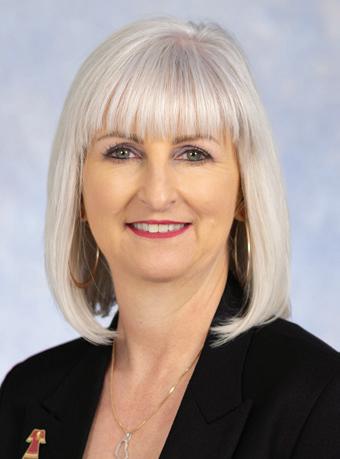
It’s been my honour to serve as your president for the last year, engaging with members and local leaders while also working to forge positive working relationships with government and education stakeholders.
We entered this round of bargaining with high expectations. We understood that 16 years of underfunding would not be resolved in one round, but we must make gains in working conditions and salary at the bargaining table.
3. Finally, I would like to see us undertake a BCTF survey province-wide of all members. What do members know and think about the services and governance of the BCTF? Such a survey is essential to membership engagement and our moving forward with a collective vision.
I would like to use my 30 years of BCTF institutional knowledge and history in the service of the membership. I look forward to meeting and speaking with delegates at the AGM about my vision for 2020 and the years ahead.
www.facebook.com/ DaveHarperForBCTFPresident
EXPERIENCE:
Provincial:
Member-at-Large (2000–02), Income Security Committee (1999)
Local:
President, First VP, Bargaining, TTOC Chair, Staff/H&S Representative
Teaching: 30 years (English and French Immersion)
Education: BA and PDP FOR PRESIDENT
Teri Mooring Quesnel

We find ourselves at odds with the new government around funding, provincial assessments, accountability, and recruitment and retention issues. The teacher shortage significantly impacts our work and has a particularly detrimental effect on our most
vulnerable students. We must continue to press government to work with us to address these issues.
We must continue to oppose the prevalence funding model by educating parents and the public to keep the pressure on government.
Member engagement is of paramount importance and will be achieved by reflecting on our internal structures, examining and removing barriers to participation, and ensuring all teachers find safe spaces and a sense of belonging in our union.
Both opportunities and challenges lie ahead, with your support I would be honoured to continue to work on your behalf as president.
Experience:
International:
Education International: Thailand (2019), Trinidad (2018)
National: CTF Director
Provincial: President, First Vice-President, Second Vice-President, Member-at-Large
Local: President, VicePresident, LR, Bargaining Chair
Teaching: 22 years Intermediate, Resource Teacher
Education: MEd (UNBC), Curriculum/ Counselling, BA (SFU)
Nisga’a
It is an honour to put my name forward for First Vice-President on the provincial Executive Committee. I have been committed to our collective solidarity for more than 33 years.
Bargaining: I stand behind our Bargaining Team. I believe the action plan that they have helped to create and that the Representative Assembly adopted will allow members to support them in negotiations.
Democracy: Elections are an opportunity for the membership to provide feedback to the leadership, throughout the campaign process, and ultimately the ballot box. I believe the most important part of a democracy is free and unfettered elections.
Equity and inclusion: I am very proud of the work we have done to promote equity and inclusion in our union, as this is crucial for solidarity and for our success. There is still work to do including raising awareness about racism, colonizing attitudes, and privilege within our union.
Teacher workload: Working in a small local I have had the opportunity to see the demands placed on our teachers every day and witness their good will to come back day after day. Taking advantage of our teachers’ good will needs to stop.
Experience:
Provincial: AGM (15+), LR (5+)
Local: President (17), Vice-President (11), Bargaining Chairperson (7), Status of Women (1)
Teaching: 8–12
Woodworking/ Carpentry, K–12
Counselling
Education: BSc
Biology major (SFU), PDP (SFU), Accelerated Technology Program (UBC)

FOR FIRST VICE-PRESIDENT
Clint Johnston Chilliwack

FOR SECOND VICE-PRESIDENT
Carole Gordon Central Okanagan

FOR SECOND VICE-PRESIDENT
Stephen Querengesser
Haida Gwaii
This past year as First Vice-President has brought both opportunities and challenges. As it has been a bargaining year with high demand, I have had the opportunity to connect with and hear from teachers in almost every local in the province—still the best part of this work. And it means I am well aware of the challenges our membership faces: increasing and unmanageable workloads, poorly implemented and resourced policy changes, increasing violence, and more. But our current focus must remain primarily on getting a fair, negotiated contract for members.
The government’s move toward prevalence funding created some of the most challenging
advocacy I have engaged in yet. Pushing back strongly for our 45,000 members in meetings with such a diversity of groups and opinions is difficult—but essential.
And we continue our equity work: looking both outward at the workplaces and communities of teachers; and inward at our policies, procedures, and structures to improve access and voice for all. Only when every member feels welcome, safe, and heard can we work together in true solidarity to achieve our goals. This work must be intentional and ongoing to succeed.
It would be a privilege to continue to represent all teachers’ voices.
Experience:
International: CTF Delegation Head, EI World Congress; ISTP 2018; Bolivia 2016
National: CTF VicePresident, multiple CTF committees
Provincial: BCTF 1st Vice-President, Member-at-Large
Local: President & others
Teaching/
Education: 17 years; BEd Elementary & BHK (UBC)
It’s been a privilege to be Second Vice-President this past year, advocating for the needs of teachers across the province. I am grateful for the conversations with members and locals about the pressures teachers face with curriculum and reporting policy changes, lack of resources and support, increased violence, and workload.
The Charter for Public Education, published in 2003, articulated the people’s values about public education, and we work to ensure education policy and decisions align with those values. We must continue to challenge government’s neo-liberal mandates and budget priorities, reaching a deal that leads to all BC’s public schools having qualified teachers and specialists to meet student needs.
We can unite! It is time for a change. Public education continues to be under attack, and our union risks being distracted, divided, and demoralized. A common vision will bring members together to achieve what has seemed impossible for the past 20 years: professional pay, professional workload, and professional autonomy that address equity for all our members and our students.
Teaching in the vulnerable classrooms of my community has shaped how I understand the pressures teachers and students face. I volunteered on my local executive after seeing improved learning conditions for our students when local and provincial union leaders
The Federation has done much work on equity and inclusion and continues to reflect on its practices and policies in order to create more inclusive places for learning, working, and decision-making. We look for opportunities to enhance member involvement in schools, districts, locals, and the BCTF. Solidarity relies on an engaged membership and we must remain responsive to its needs.
I am committed to amplifying voices of members across the province. The power of the BCTF is in its 45,000 members whose diverse stories and experiences shape the direction of the union.
Experience:
Provincial: 2nd VP 1yr, Executive 5yrs, Pensions, CTF Trustee, AGM 17yrs
Local: Executive (2nd VP, Health & Safety, Bargaining), Staff Rep
Community: Provincial Candidate, Labour Council President, United Way
Teaching: Elementary Prep, Classroom (28 yrs)
worked to improve working conditions for their colleagues. These experiences have taught me to listen deeply to my colleagues and community. This shapes how I represent member concerns with integrity to the best of my abilities throughout the multiple roles I have held.
As part of your leadership team, my focus will be on amplifying member engagement by simplifying the vision of the BCTF, increasing the relevancy of our union, and making it more accessible to all members. Returning to our roots of activism and advocacy for the values of public education will be at the centre of all my actions.
Experience:
Provincial: AGMs (6), LR (1), Summer Conference (9), FLI (3)
Local: President (4), Bargaining (1), Pro-D Chair (3), SJ Chair (2)
Education: BSc, PDPP, MEd
Teaching: TTOC, Secondary (science, math, social justice, planning, etc.), Primary
Candidate portraits by Luis Isidoro.
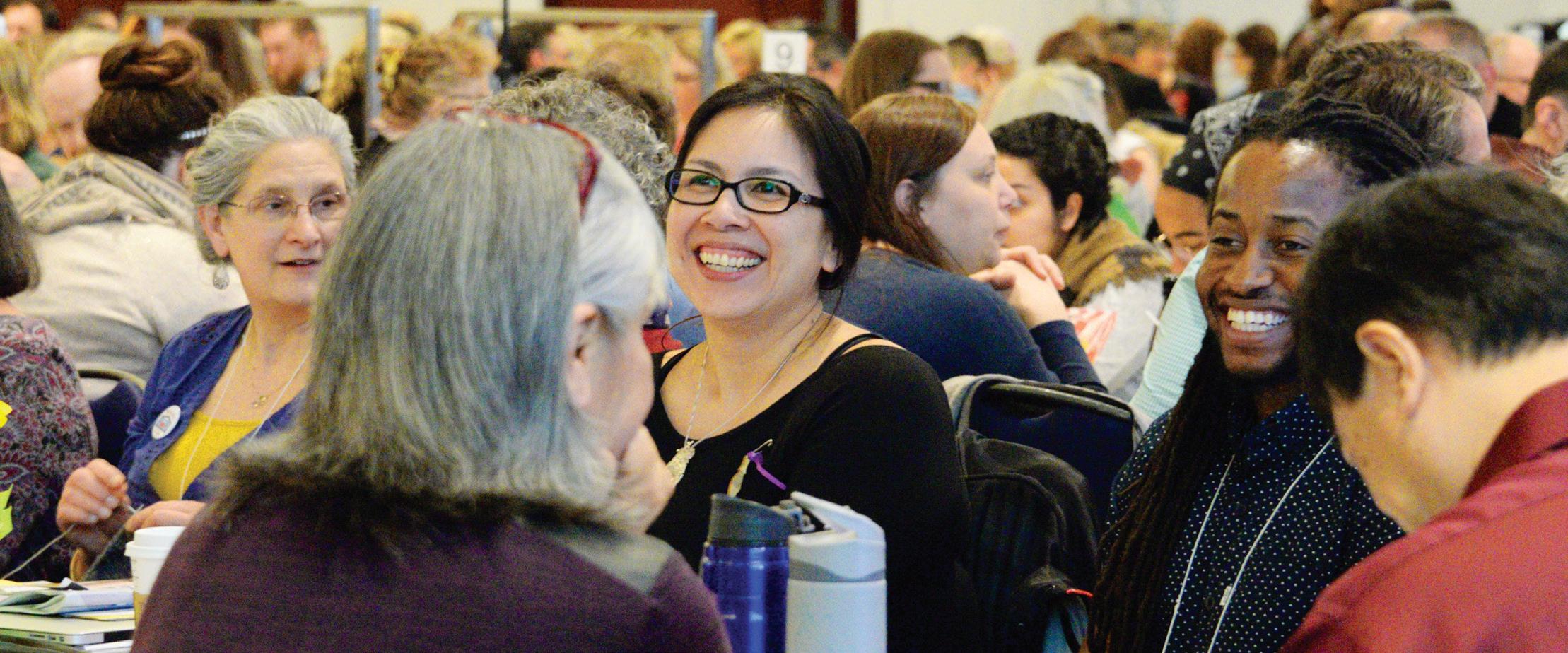

FOR MEMBERAT-LARGE
ABORIGINAL
Marjorie
Dumont
Vancouver
Elementary

FOR MEMBERAT-LARGE
RACIALIZED
Benula
Bunjun
Sooke
Dinï ze’, ts’akë ze’, skiy ze’, I acknowledge I am a visitor on the traditional, ancestral, and unceded territory of the Sk w x wú7mesh, S l ’ ílw ta /Selilwitulh and x wm 0k w y ’ m.
My name is C’tan (Marjorie Dumont). My father’s name is Chief Wah tah k’eght and my mother’s name is Chief Wila’at. My house chief’s name is Chief Na’moks. I belong to the Tsayu clan of the Wet’suwet’en people. My roots are also Gitksan.
I am humbled and honoured to put my name forward again for Aboriginal Member-atLarge. My colleagues and fellow members have inspired me to continue my journey in union activism, as I have an important role to
As a woman of colour and a Francophone, I have had the privilege to advocate on behalf of, and work alongside, teachers in various capacities across the province as a Local Representative, a Vice-President, and a President of a larger local. I have also been a SURT facilitator for over a decade. These experiences, and my many years in the BCTF, have allowed me to develop a strong, assertive identity with which I continue to defend our collective agreement rights and advocate on for members.
Our union is the product of our membership’s voices. I listen to and act on them. During our last job action, I engaged with teachers to
play in our union, guided by my unique and deep understanding of the challenges faced by our union and public education.
My leadership is grounded in listening and learning from others. The strength of our organization lies in our active, diverse, member-driven structures. I will continue to guide and support work to confront and change the colonizing practices that have influenced our workplaces, address recruitment and retention issues, and fight to protect public education. Internally, I support initiatives to address systemic inequities to create safer spaces for all members and challenge barriers to member involvement.
Experience: Provincial: Member-at-Large, Health & Safety Advisory Committee Liaison, AbEd PSA President, SURT presenter/trainer, PSID staff, Teachers’ Council
Local: Executive, WLC/B Chair, Grievance Committee, Staff Rep
Teaching: Elementary, Secondary, Resource, UBC Education Faculty Instructor
support their creative ideas as we stood in defence of our rights and inspired each other in acts of solidarity.
Like so many of you, I am concerned with the state of public education, where it is headed, and our government’s nonchalant approach to education that lowers the standards of this crucial public service.
I have the leadership skills, experience, and vision necessary to represent teachers. I will be honoured to listen and engage in advocacy on your behalf. Together, we must continue to make public education the issue.
Experience:
Provincial: SURT facilitator (2012–present), French Advisory Committee (2009–2014), Parent group presenter English/ French workshops (2009–2013)
STA, Local 62: LR (2019–present) GVTA, Local 61: President (2013–2016), Acting President (2011–2012), 1st Vice-President (Sept 2010–2013), LR (Sept 2007–2010)

FOR MEMBERAT-LARGE
RACIALIZED
Kiran
Sidhu
Richmond

FOR MEMBERAT-LARGE
Kevin
Amboe
Surrey
I understand the complicated nature of the role of a teacher. It can be gratifying, but also keep you up at night; it can be stimulating, yet heartbreaking; it is both joyful and exhausting. One thing I know for sure is that teachers work hard and care so much. I take pride in being a member of this union of conscientious, thoughtful, and generous individuals.
These past years have been particularly testing as we face challenges at the bargaining table with the recruitment and retention crisis, curriculum implementation efforts, and the ongoing work of union renewal and member engagement. I believe
in our union, our democracy, our supporters, and that we must continue to fight for our students’ diverse needs and our own working conditions.
I come from a family of proud unionists and am thoroughly committed to the principles represented by this movement. The role of racialized member is one of special responsibility, one I would honour by rolling up my sleeves and doing the work to represent not only racialized members, but all members of the Federation. I would be honoured to work in this role with the purpose of building bridges, promoting harmony, and inspiring growth.
Experience:
Provincial: Adult Ed Advisory Committee, AOEC PSA Treasurer, AGM, Racism Issue Sessions, BCTF facilitator
Local: Staff Rep, Chair SJ Committee, Pro-D Chair Lived: Firstgeneration Punjabi WOC actively trying to do the necessary work of decolonizing
Public education is a cornerstone to an educated, democratic society. It needs to thrive for teachers to be successful in creating places of safety and learning for all.
No management right is freely given. Collectively, we must push against forces that privatize, defund, underfund, and belittle our rights, our work, and, our working conditions. The BCTF, standing in solidarity, must continue building a united strong voice to advocate for increasing salaries, increasing resources, meeting diverse needs, and growing equity and inclusivity.
I believe that the BCTF is a member-driven organization valuing every member, committee, local, and sublocal both individually and to the whole. Equity is a
force to lift people up and much more work is needed to actively remove barriers of access, to rights, and to opportunity.
I bring to our leadership more than 20 years of activism with extensive direct support to members and locals through School Union Representative Training, provincial specialist associations, and professional development workshops. I am a unique thinker, who critiques, analyzes, and reflects on the issues while investigating creative solutions.
As Member-at-Large, my focus will be advocacy, exploring solutions, inclusivity, open-mindedness, union solidarity, and you as the membership.
http://bctfagm2020.amboe.ca for more
Experience:
Provincial: WLC/BAC, SURT facilitator, CUEBC Executive/President, 19 years AGM Delegate, RA Agenda Committee and Chairperson (Alternate), AGM Chairperson
Local: Local Rep, Staff Rep, Bargaining Cochair, Peer Mediator Teaching: Elementary, Secondary, Consultant, and Integration Support Teacher

FOR MEMBERAT-LARGE
Jessica Hill
Cariboo
Chilcotin

FOR MEMBERAT-LARGE
Allison
Jambor
Vancouver
Elementary
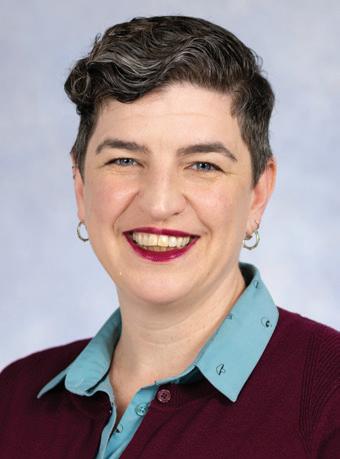
FOR MEMBERAT-LARGE
Robin Tosczak
Greater Victoria
Though I am still a relatively new teacher, I am very proud to put my name forward as a candidate for Member-at-Large. For me, being an active participant on my local executive committee for the past four years has been about two things: advocacy and service.
When the members of my local elected me, they were putting their trust in me. They expect me to defend their rights, support them when they find themselves struggling, and uphold our collective agreement. These are expectations I take very seriously, and they will shape the way I contribute to the work of the BCTF Executive Committee.
I am a thoughtful person by nature, and I strive to engage in active listening with my students and the members I serve. Being an informed participant of any decision-making body requires both of these qualities, especially in a member-driven union such as ours.
I see the role of Member-at-Large as key to ensuring the perspectives of all our members reach the table, and I am eager to make myself available to the outreach and committee work that will allow me to serve in this capacity.
Experience: Provincial: TIE-BC Publication Chair, Women in Negotiations Local: Communication Chair, Local Representative, VicePresident, Bargaining Committee, LSA President Teaching: Learning Support, Alternate, Grades 8 and 9 Humanities Education: BA, BEd, MEd (Special Education)
When I first became involved in our union as a Staff Representative, I was so proud of the incredible work our local and the BCTF undertook on behalf of students and teachers, but also the outreach to other workers and allies locally, nationally, and internationally. The process and structures of the BCTF placed members and our diverse voices at the centre of our decision-making and understood our role, as well as our responsibility, in a larger movement.
Over this past year, we have taken strong positions about education funding, curriculum change, the recruitment and retention crisis, and what constitutes a fair deal at the bargaining table. These are challenges
that need our continued attention and resistance. We need to be informed and stand in solidarity as we continue to respond to a world that is changing around us. We need to listen carefully to the voices of our membership, ensuring that unique experiences that reflect geographic diversity, equityseeking groups, and the voices of our newest members are reflected in our decisions, but also in our structures.
I would love to continue to work as an advocate for teachers and students as Member-At-Large of the BCTF Executive Committee.
Experience: Provincial: AGM Delegate, BCFED Local: VESTA VicePresident, Chair/ Co-Chair Professional Issues, President/VP Vancouver TeacherLibrarians’ Association, Vancouver District Labour Council Teaching: TeacherLibrarian, Resource, Kindergarten, Grades 1–3, Prep, job-shares and full-time Education: BA, BEd, TL Diploma
In 2016, I joined the Executive Committee ready to learn and excited to serve. Four years on, I still bring that curious and reflective nature to our discussions and deliberations, and I’ve also built knowledge and experience along the way.
Teachers have to be strategic and responsive, no matter who’s in government. Whether it’s bargaining, contract defense, elections, or education policy, we have seen in the past year that we can’t depend on the courts or political parties to fully defend public education. Elections and court cases are only part of the strategy. We must also sustain our values-based organizing and mobilizing.
Our union thrives when teachers feel empowered, included, and connected.
The BCTF is engaged right now in the challenging work of acknowledging systemic discrimination and barriers to engagement for members who are marginalized due to race, sexuality, gender, colonization, and disability. We are working to dismantle those barriers. This requires us to have brave conversations and embrace change.
Folks I work with will tell you I can do that. I have appreciated and learned from your candid conversations, thoughtful questions, and constructive feedback. Thank you for contributing to our collective wisdom and strength!
facebook.com/rbntzk twitter.com/rbntzk
Experience: Provincial: Executive (2016–present); Teacher Magazine & TTOC Advisory Committees, workshop facilitator (2013–2016)
Local: Executive (2012–present, currently 2nd VP); Victoria Labour Council Executive (2013–present); Contract (2014–present) and Bargaining (2018–present) Committees Teaching: Elementary (2010–present, currently Reading Recovery)

FOR MEMBERAT-LARGE
Susan
Trabant
Prince George
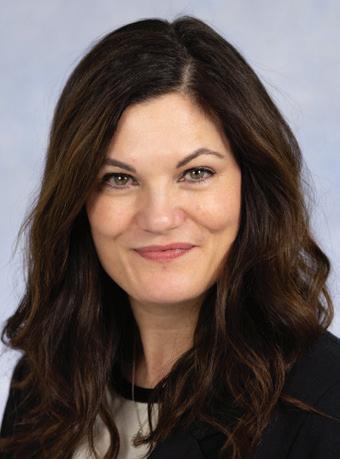
FOR MEMBERAT-LARGE
Katherine
Trepanier
Prince George
I see things through an intersectional lens, which allows me to view issues through many perspectives. I am a marginalized individual, so I have been able to make connections with members through our shared experiences. Building relationships through various meetings, local visits, and with the help of social media, has been some of the most important work I have done in this time on our Executive. It has allowed me to hear you! As the BCTF, we stay strong when we are connected.
The bargaining of our priorities (salary, class composition, and maintaining superior provisions) has been the focus this year. We had to make some decisions that slid some
of our other issues to the back burner to wait for the next round. Our Supreme Court win language must be the floor, not the ceiling. Every member should be lifted up and recruitment/retention of new teachers to every area in BC rectified, so our salary issues must be addressed this round. “We cannot go back. Nobody voted for that!”
I am committed, listening, and engaged in moving us forward. I will continue this hard work at our Executive table. Please continue to support me, so I can support you!
Twitter: @untamed39
Experience:
Provincial: EC Member-at-Large, HSAC member, BCTF facilitator, Rep Assemblies, AGMs, Northern SOGI Rep Local: School Union Rep, PGDTA Executive Memberat-Large/Treasurer, District SOGI Rep
Teaching: 15 years
Education: BA, MA
I am a proud 26-year member of the BCTF. I have been a French Immersion K–7 teacher in the Lower Mainland and, for the last 21 years, in Prince George. I am the 2nd Vice-President of the PGDTA, and I’m currently in my first term as a Member-at-Large on the BCTF Executive Committee.
As a Member-at-Large I have sought out and listened to members’ concerns and ideas and brought these forward at the provincial level. I have a strong voice and use it in my representation of members.
Despite the many challenges we are facing, I remain excited for the future of the BCTF and
the teaching profession. We need to support and engage members. Engagement has been part of my work in Prince George, and we have seen attendance grow at the teacher events I have organized.
I am passionate about teaching and union work, but I also believe in having a good work/life balance. I enjoy acting in community theatre productions, singing, travelling, and spending time with family and friends.
The best part of this work is the people I meet, and I look forward to speaking with many of you during the AGM.
Experience:
Provincial: BCTF Member-at-Large (1 year), WLC/BAC, Local Representative, Parent Presentation facilitator, AGMs, Summer Conferences Local (PGDTA): 2nd Vice-President, Bargaining Committee/ Team, Staff Representative Education: MEd in Educational Practice, BA, PDP (SFU)


FOR MEMBERAT-LARGE
Matt Westphal
A year into bargaining, facing job action, it is vital that we be able to work together. In the BCTF we debate issues passionately but are united by our commitment to serving our members, students, and communities. I pride myself on being able to work with members from all perspectives across BC.
The Executive Committee must not only make difficult decisions about bargaining; it must advance reconciliation and equity for all members. In my own local, I have a proven track record of addressing the barriers many face to meaningful engagement.
skills in identifying and analyzing issues from all angles. Having done legal work for management, I understand how the employer thinks and am better able to anticipate their next move.
As a teacher, I have known what it is like to struggle to meet the needs of a class unsuitable for learning. And as President of the Federation’s largest local, I understand the realities facing educators daily from the teacher shortage, insufficient support for students, and challenges with the restored language, and I would bring this practical perspective to my role on the Executive Committee.
Experience:
Provincial: Income Security; Finance; Delegate to BCFED, CTF, TriNational; Trustee, G.A. Fergusson Award
Local: President, 1st VP, 2nd VP, LR, chief bargaining spokesperson
Teaching:
Secondary Social Studies, FSL, Aboriginal Support

Surrey FOR MEMBERAT-LARGE Kip Wood Nanaimo
Before becoming a teacher, I practised law for seven years. This experience honed my
Teachers confront political realities every day—austerity funding, systemic injustice, and climate change among them. The core of our work as teachers is our desire for students to believe that a better world is possible and that they have a role in the struggle to make it better. Our working conditions and our students’ learning conditions need to inspire that important work. Despite the distressing problems facing us, we must continue to work together for a world that our students deserve and can take part in creating.
In this round of bargaining, we continue to face challenges. Once this round is completed, the work will not be over. Our
www.mattwestphal.ca
priorities become collective agreement enforcement and preparing for the next round. Embedded in this work are the needs of students and their communities.
Together, we need to work to improve working conditions for teachers, address the recruitment and retention crisis, and build a sustainable union. This is what motivates me as an Executive Committee member.
My experience, my ability to analyze complex situations, and my respect for others’ opinions and perspectives all equip me for this leadership position. I would be honoured to have your support at the AGM.
Education: BA, MA, LLB, BEd
Experience:
Provincial: BCTF
Executive Committee (6 years), AGM
Delegate (25 years), Finance Committee (2 years), Teacher magazine contributor (12 years)
Local: Local President (3 years), BCFED (10 years), Bargaining Committee (20 years) Education: BSc, PDP, MA

Thank you to all delegates for spending part of their spring break conducting the business of the BCTF.
BCTF MEMBERS with a contract participate in the Salary Indemnity Plan (SIP) with contributions of 1.87% from each paycheque. This plan provides both short- and long-term benefits to members who, because of illness or injury, are disabled from working and have exhausted all of their sick leave. If the illness or injury is work-related, a Workers Compensation Board (WCB) claim must be initiated.
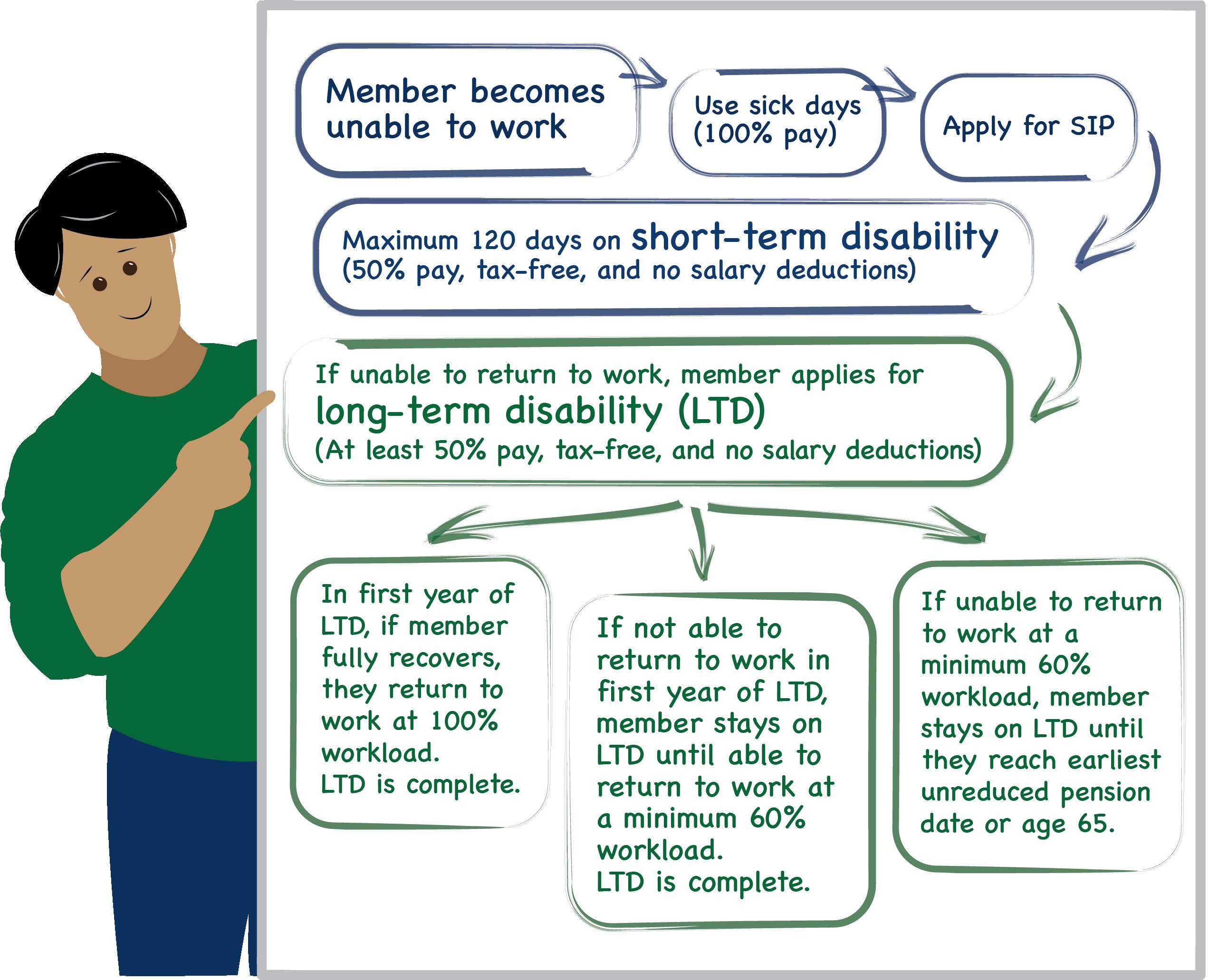
There are more details than can be provided in this flowchart. Please contact your local union office or the BCTF with questions specific to your situation.
If you are close to your earliest unreduced pension date and have enough sick leave accumulated in your sick bank to provide you with an income until six months prior to your retirement, you may want to investigate withdrawing from the long-term section of the plan. This will save you 1.36% in SIP contributions from your paycheque. Contact your local union office for guidance.

Book reviews by Renée Willock Local President, West Vancouver
Published by Penguin Random House Canada, 2019

NAZANINE HOZAR is an English and French teacher who has worked as a TTOC in both North Vancouver and West Vancouver for the past five years.
Hozar was born in Tehran, Iran in 1978. She moved to Surrey, BC when she was seven years old and had the experience of being an English language learner in the classroom. She is a natural storyteller, which she finds gives her insight into the differing perspectives of her students.
Hozar’s debut novel, Aria, provides an insider’s view of the Iranian Revolution. Through the eyes of the title character Aria, as she grows from discarded baby to university student and young mother, we are exposed
to the complex history of modern Iran. Nothing is presented as black and white. Torture and executions occur under the regimes of both the Shah and Ayatollah. Nor is the revolution simply depicted as Islam versus communism; people from a variety of backgrounds come together to overthrow a corrupt government, rejecting one dictator only to empower another.
While the characters come from a variety of social classes, religions, and situations, all defy stereotypes. Both personal and political, this sweeping historical novel educates the head and the heart about a country that is often misunderstood.
Published by Caitlan Press, 2018
BECKY LIVINGSTONE was an elementary school teacher in West Vancouver for 20 years. When her 23-year-old daughter Rachel died of a brain tumour, Livingstone left teaching and began her travels to spread her adventurous daughter’s ashes around the world. The Suitcase and the Jar: Travels with a Daughter’s Ashes is a memoir and travelogue that invites the reader on a journey through grief.
Livingstone left her family home in North Vancouver with a jar of her daughter’s ashes tucked in her suitcase. Over 26 months, she travelled to Spain, Ireland, Switzerland, England, Australia, India, the United States,
and finally back to British Columbia. At each stop, she released some of Rachel’s ashes.
Interspersed throughout her travels, we move back in time, seeing cancer’s destruction of her daughter’s body and mind. Livingston experienced not one but two deaths that shattered her world, as her fiancé also died of a brain tumour. Despite her excruciating mental anguish, she decided to move forward.
Livingstone’s writing is honest and poetic. She explains her decision to travel the world alone, honouring her daughter’s wish to keep exploring:

“If I could do this, I could do anything.” As Livingston lets go of her ashes, she releases her daughter, giving her to the world. This is a story of loss, courage, resilience, and hope. “Joy is possible in the world of grief,” Livingstone tells us. “Claim it.”

Book reviews by Sara Florence Davidson, Assistant Professor, Teacher Education Department, University of the Fraser Valley
Published by HighWater Press, 2019
IN GHOSTS, the final installment of The Reckoner trilogy, Cole continues to defend his home community of Wounded Sky First Nation. Once again, award-winning author David A. Robertson, a member of Norway House Cree Nation, achieves a fantastic balance between the development of the characters and the pacing of the story to create a highly engaging read.
The Reckoner trilogy deftly incorporates some of the learning around Indigenous knowledges that has been introduced with the revised curriculum in BC. Throughout the series Robertson embeds Cree beliefs and cultural practices into the story, while providing companionship for
Cole with a contemporary rendering of a Trickster. Ghosts also includes a diverse array of characters who face different kinds of struggles, including challenges with mental health, while also being portrayed as resilient. The series provides yet another example of Indigenous peoples as enduring, as it is set in the present day.
This novel supports the teaching of the English language arts curriculum for Grades 7–10 (and up). Ghosts would work well for independent novel activities or literature circles.
Before beginning reading, students would benefit from having some basic understanding of traditional Indigenous stories and the role of Tricksters.

Though it is not necessary, it is definitely recommended to read Strangers (Book 1) and Monsters (Book 2) before reading Ghosts. This book contains some coarse language and violent descriptions.
Published by Theytus Books, 2019

IN THE GIRL AND THE WOLF, written by Métis author Katherena Vermette, a young girl wanders too far into the forest and gets lost. From between the trees, a wolf appears and patiently
guides the girl to remember what she knows about survival in order to find her way back to her family. The story is told in a way that recognizes the strength of the Indigenous girl and portrays her as strong, independent, and capable. Cree-Métis artist Julie Flett’s unique collage illustrations perfectly complement the words and set the story in present day, which reinforces the idea that Indigenous peoples do not only exist in the past.
In her author’s note, Vermette shares that the story was inspired by European fairy stories as well as traditional Indigenous stories, but she clearly states that The Girl and the
Wolf is entirely made up, which means it is not necessary to follow traditional protocols when sharing this story in classrooms. Additional information about the book’s brief reference to a ceremonial practice (a tobacco offering) is also provided in this section of the book.
This story supports teaching the English language arts curriculum for Kindergarten – Grade 4. The story lends itself to a range of interactive literacy activities including story vines, drama, and working with “loose parts.”


Gently used 3G phones with chargers, defaulted to factory settings.
National and provincial officers of Sindicato Nacional de Trabajadores de la Educacion, la Cienca y el Deporte (SNTECD), the Cuban teacher union, need usable phones for communication.
Thank you for your support.
PLEASE SEND OR DROP OFF PHONES: BCTF International Solidarity Program 100-550 West 6th Avenue Vancouver, BC V5Z 4P2
QUESTIONS?
Email: researchassistants@bctf.ca Call: 604-871-2283
An exciting outing for students during spring break!
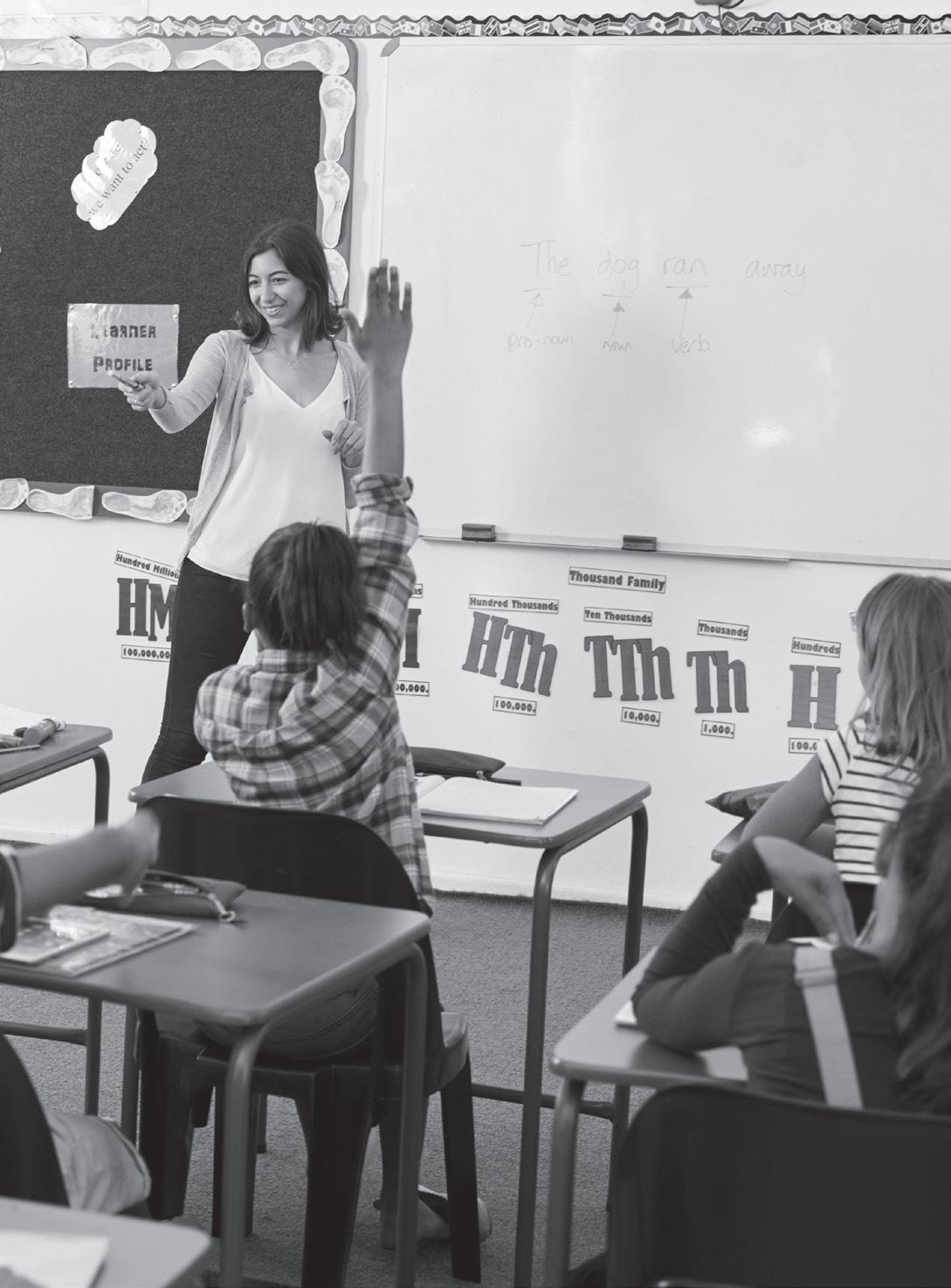


With immersive backdrops, ingenious choreography, exquisite costumes and a live orchestra, Shen Yun transports you. Embark on a journey through time and space. Discover 5,000 years of wisdom, beauty, drama and humour—live on stage.

“Exquisitely beautiful. An extraordinary experience for us and the children.”

—Cate
Blanchett, Academy Award-winning actress
“Inspirational and educational. I encourage everyone to see and all of us to learn from.”
—Donna Karan, creator
of
DKNY Doctoral, Master’s & Diploma programs designed to advance your career APPLY NOW www.sfu.ca/education/grad

Also round-trip shuttle service available for most matinee shows from
FullyonlineTQS-approvedpost-graduatecertificates YOUTEACHTOMAKEADIFFERENCE. SODOWE.
NEW!Wenowoffercoursesforeducationalsupportstaff. EarlyChildhoodEducation•EnglishLanguageLearners• MathematicsEducation•SpecialEducation•TeacherLibrarian
Eachpost-graduatecertificategivesyouadvancedstandingin theonlineProfessionalMasterofEducationprogramthrough theQueen'sUniversityFacultyofEducation
coursesforteachers.ca/bc
Wouldyouliketoteachforus?Toapply,visitourwebsite.

DE-ESCALATING POTENTIALLY VIOLENT SITUATIONS™
Vancouver: March 9; Victoria: March 12
TRAUMA–Strategies for Resolving the Impact of Post-Traumatic Stress
Victoria: March 30-31; Kelowna: April 2-3; Vancouver: April 2-3
CHALLENGING BEHAVIOURS IN YOUTH–Strategies for Intervention
Vancouver: April 4 (low-cost weekend training)
ADDICTIONS & MENTAL ILLNESS–Working with Co-occurring Disorders
Vancouver: April 15; Kelowna: April 15; Victoria: April 17
HARM REDUCTION–A Framework for Change, Choice, & Control
Vancouver: April 16
ANXIETY–Practical Intervention Strategies
Vancouver: May 4; Victoria: May 8
AUTISM–Strategies for Self-Regulation, Learning, and Challenging Behaviours
Vancouver: May 5-6
VICARIOUS TRAUMA–Strategies for Resilience
Vancouver: May 26
PLAY THERAPY–Tools for Helping Children & Youth
Vancouver: July 15-16



• 13-month program: online and face-to-face learning
• Work and study at the same time
• Program start: July
and adventure-based learning.

Professional Development Calendar
Visit the BCTF’s PD Calendar for professional development opportunities: bctf.ca/PDCalendar
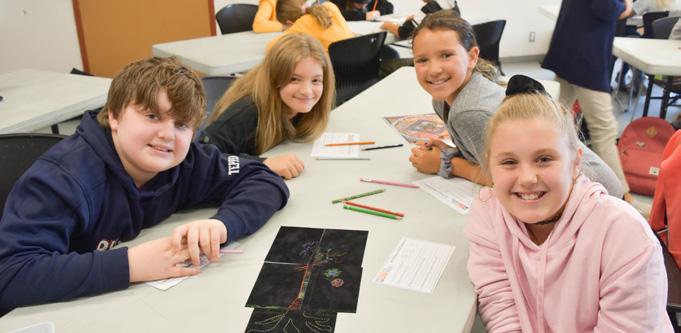
Our Art Gallery School Tours and Mainstage Theatre Performances & Films are suitable for all primary and secondary grade levels (K – 12).
Upcoming Art Gallery School Tours: From Barn to Table | February 25 - March 11, 2020 Bumps on the Printmaking Road | April 28 - June 3, 2020
Upcoming Mainstage Theatre Performances & Films: Greg Kennedy, Innovative Juggler | February 10, 2020 | 1:00 pm National Theatre Encore Broadcast: Hamlet | April 27, 2020 | 9:00 am
For booking information and fees, please visit theactmapleridge.org/arts-programs-school-programs call 604-476-2790 or email learning@mract.org

CGM = Continuous Glucose Monitors

Dr. Tom Elliott, Endocrinologist Medical Director, BC Diabetes
“Every child living with Type 1 diabetes deserves Continuous Glucose Monitors (CGM): for better safety and superior control”
Contact: Bill Petrovas, B.Sc. B.Ed. M.Ed Chief of Collaborative Partnerships bpetrovas@bcdiabetes.ca
Dexcom G6 (CGM)
Minimed 670G Insulin Pump
Baqsimi Nasal Glucagon (coming soon)
Babylon by Telus
Tandem tslimx2 pump (coming soon)
GULF ISLAND GETAWAY, Pender Island BC Website: ainsliepointcottage.com Contact Alma at 250-629-3008
NEW SOCIAL STUDIES 11 & 12 PLANNING MADE EASIER, more cohesive with “Potlatch Blanket for a China Man” and free teaching plans - as presented at 2019 BCSSTA Conference. For specifics and free sample lessons, email AzimuthBooks@shaw.ca Our kids and their teachers: WORTH INVESTING IN


Are you 65 or eligible for an unreduced pension?
You may be able to save about 1.36% of your salary.
Why? Because you are no longer entitled to longterm disability benefits under the Salary Indemnity Plan (SIP) when you attain any of the following milestones:
• 35 years of contributory service, with a minimum of age 55
• age 61, if you reach “Factor 90” before age 61
• “Factor 90” if you are between ages 61 and 65
• age 65.
It’s up to you to withdraw from long-term disability.
Ensure that in the event of serious illness or accident you have sufficient accumulated sick leave, which, when combined with 120 days of benefits from SIP short-term, will protect your salary to the end of the month in which you reach one of the milestones mentioned above.
To apply call BCTF Income Security at 604-871-1921.
AWARDS WILL BE GIVEN TO CURRENT PUBLIC SCHOOL PROGRAMS THAT
3feature the interaction of seniors and students
3require students to think and work creatively
3access and use the community as an information source
3require students to work cooperatively with each other and outside sources
3use a variety of media to record and display results
SUBMISSION DEADLINE IS APRIL 15 OF EACH YEAR Award Ceremonies will be held in each community where a winning program exists.
